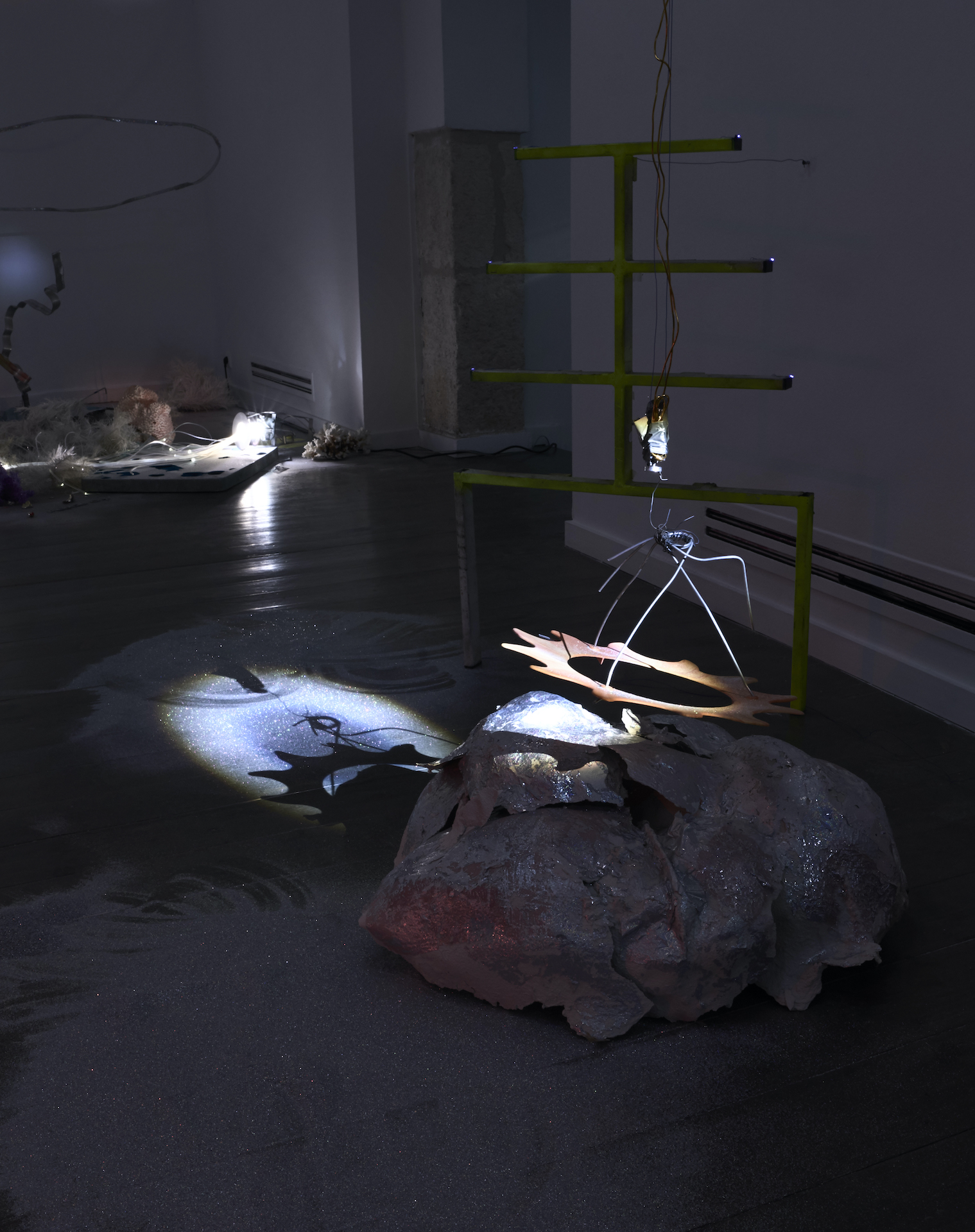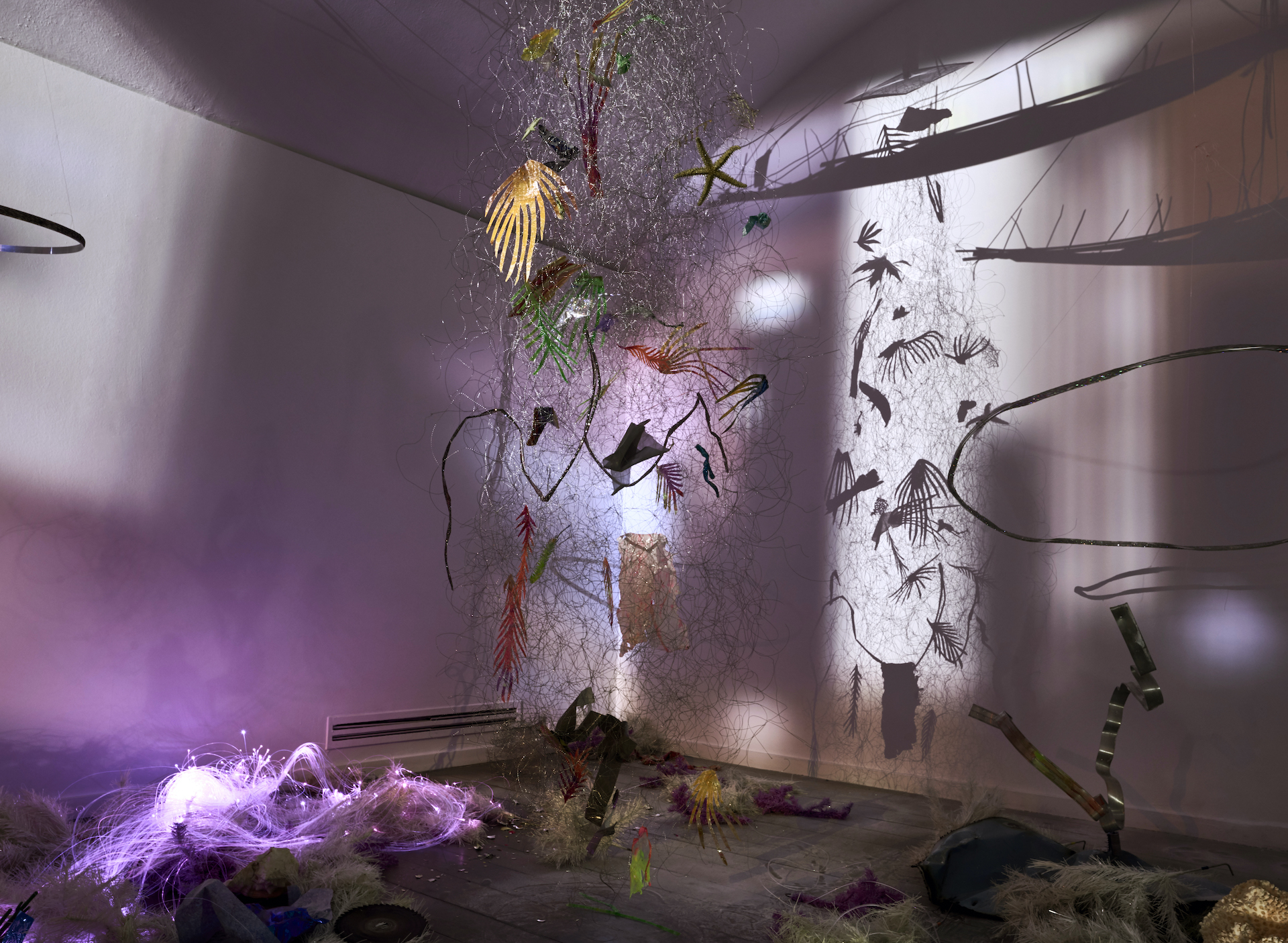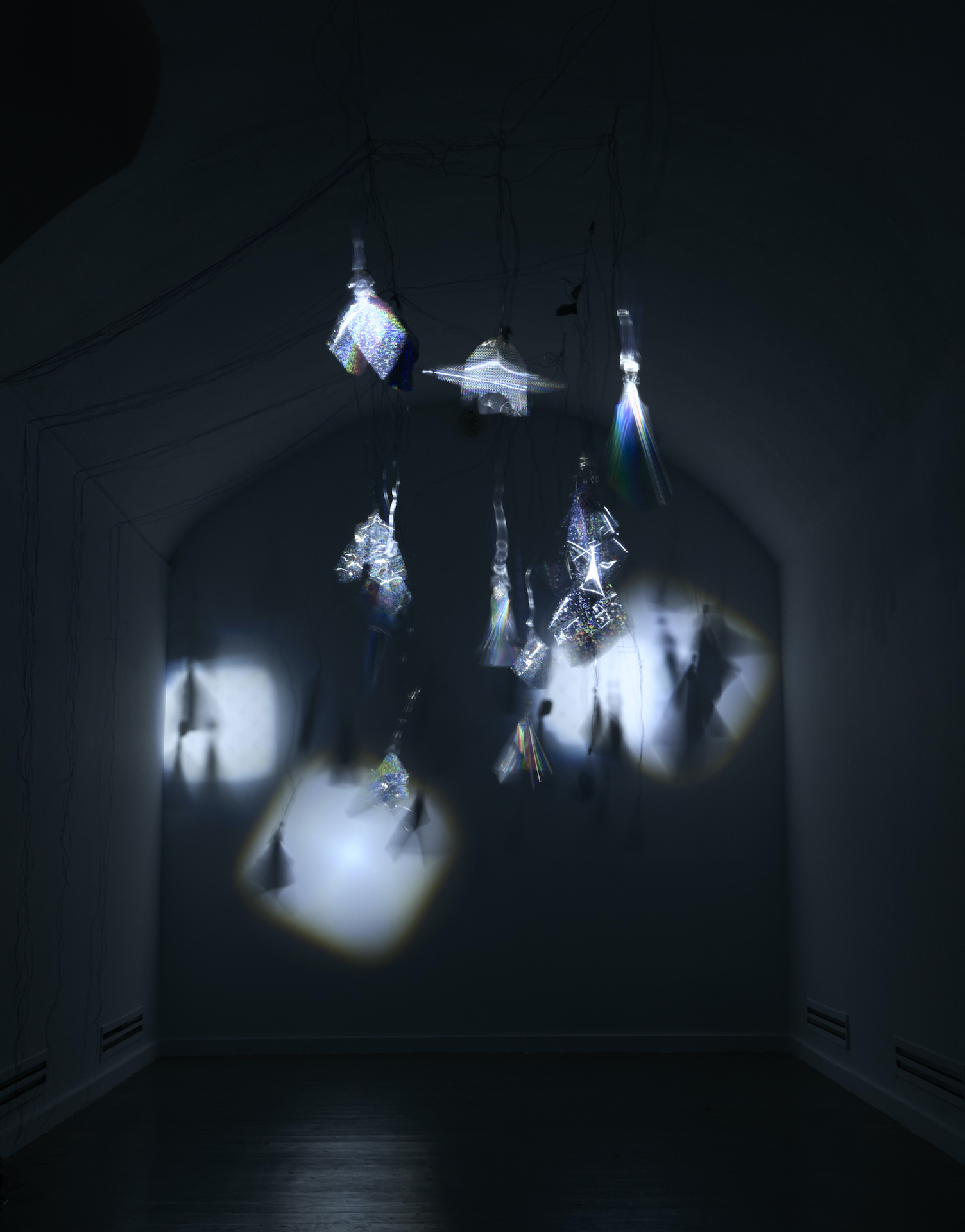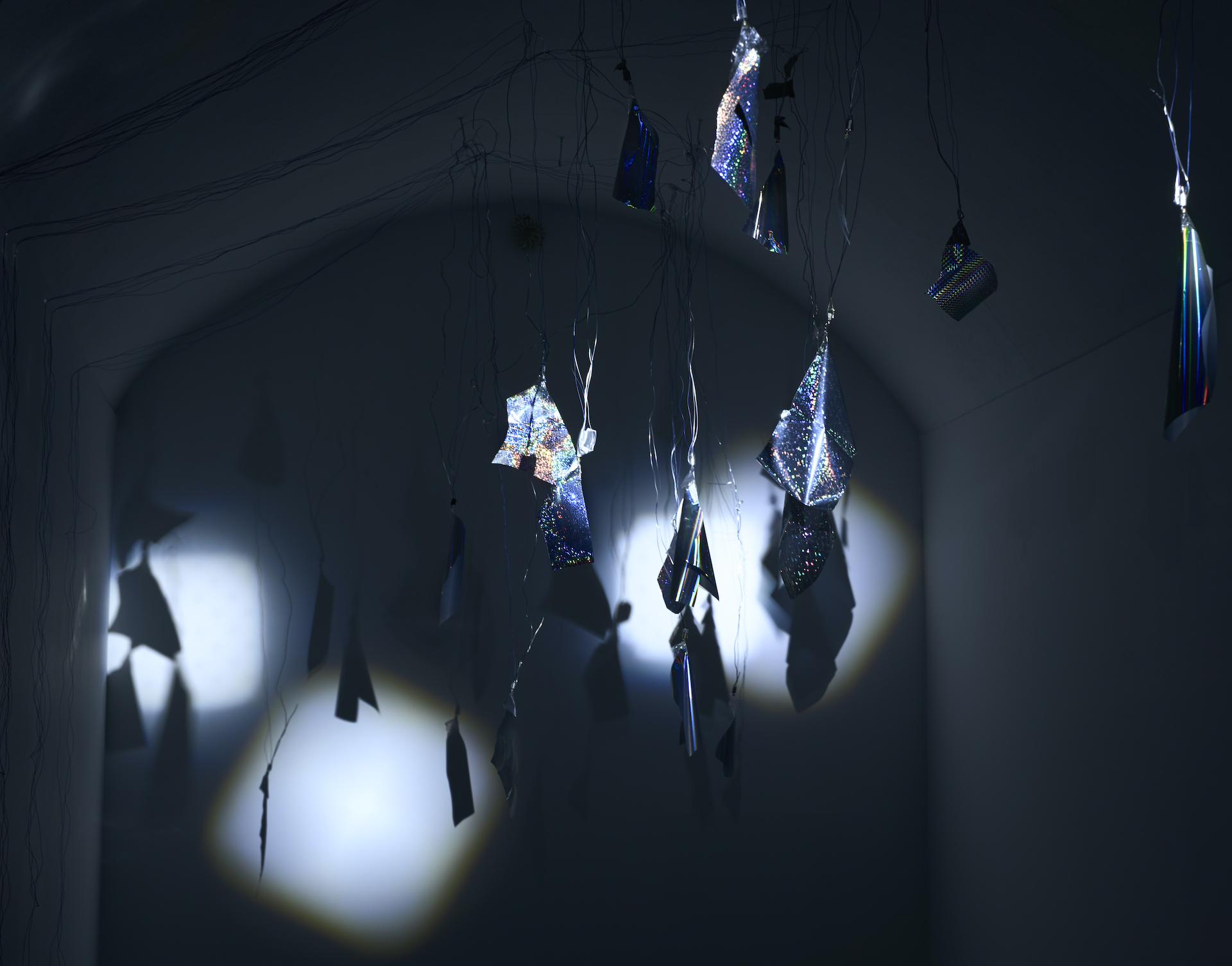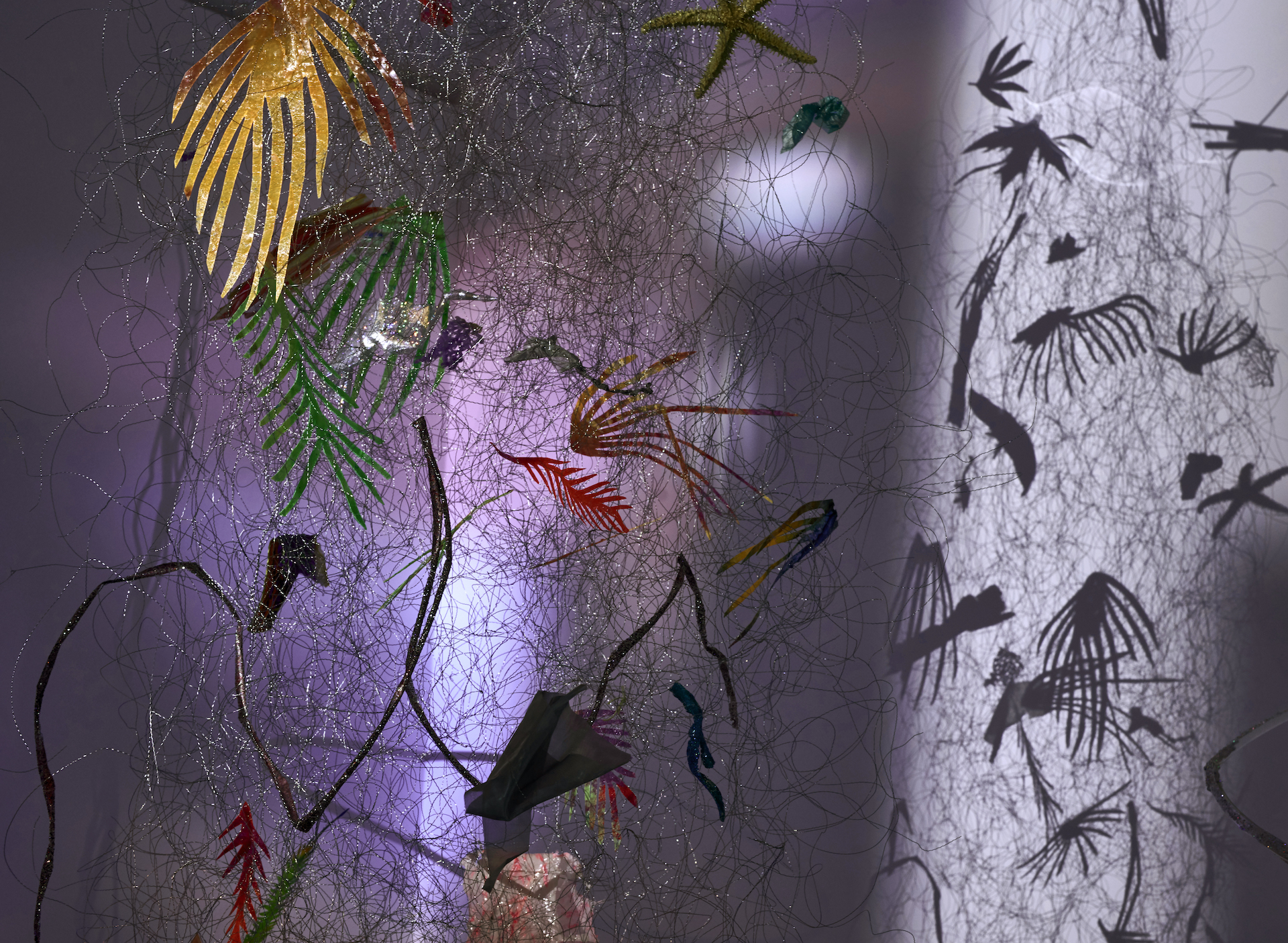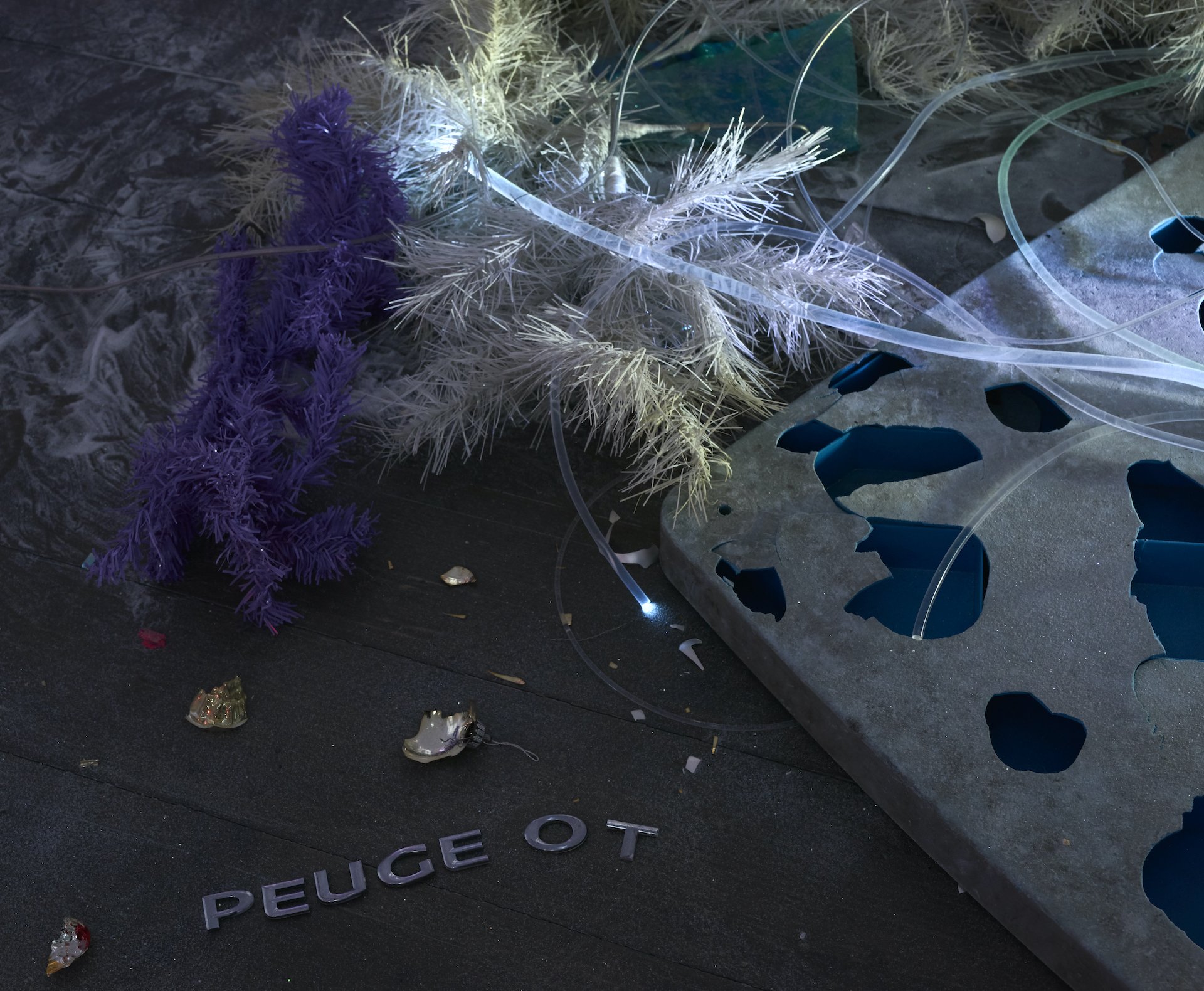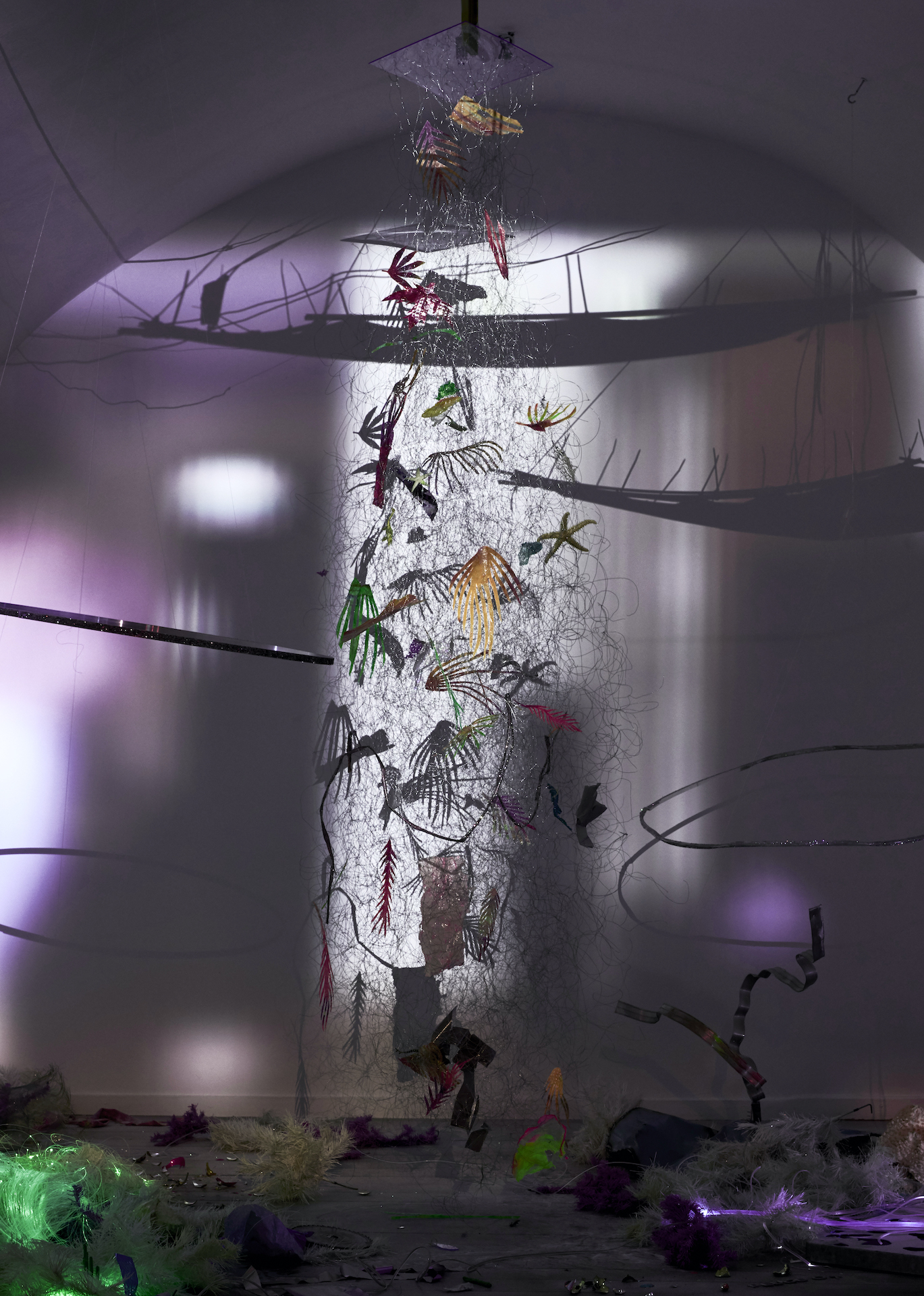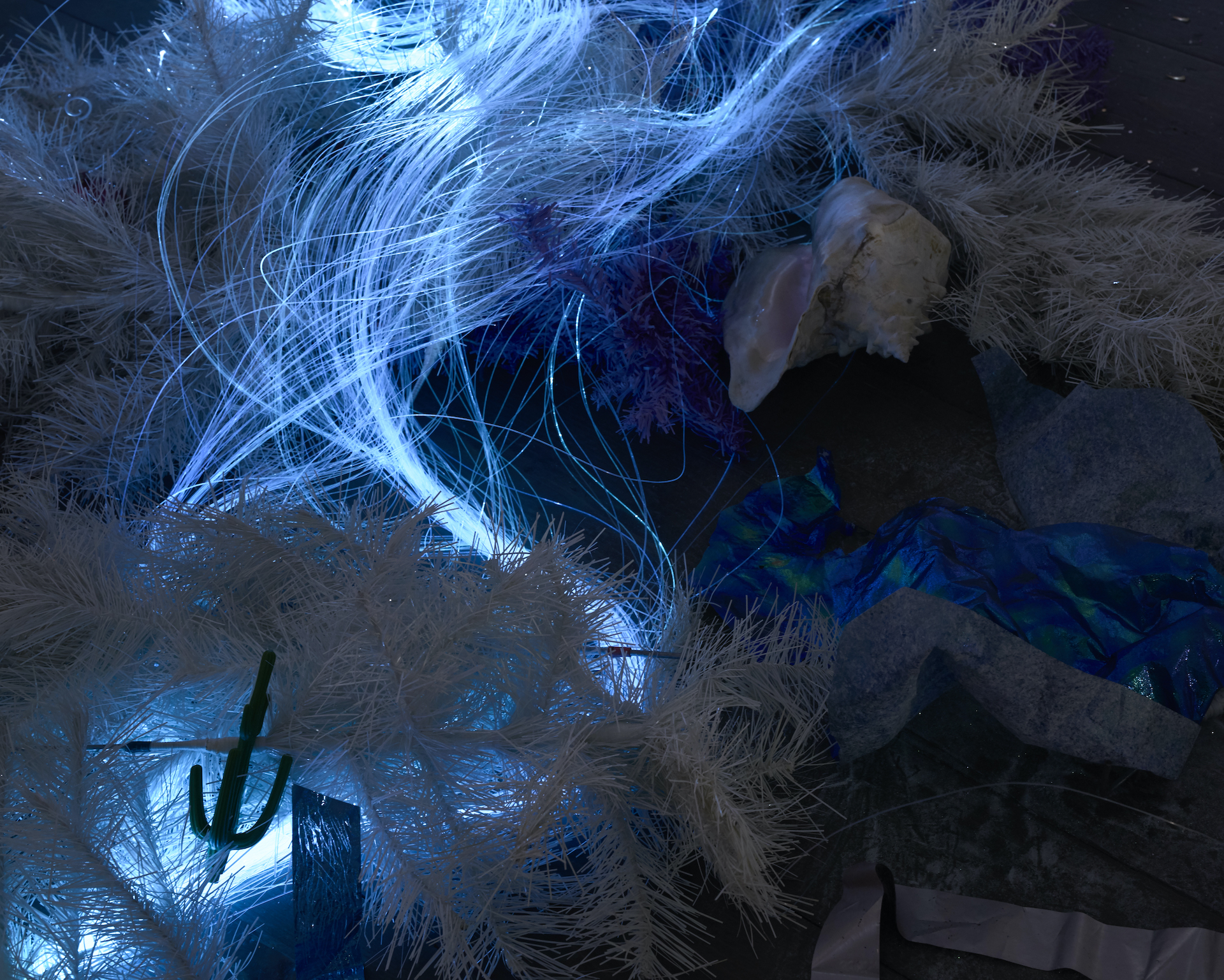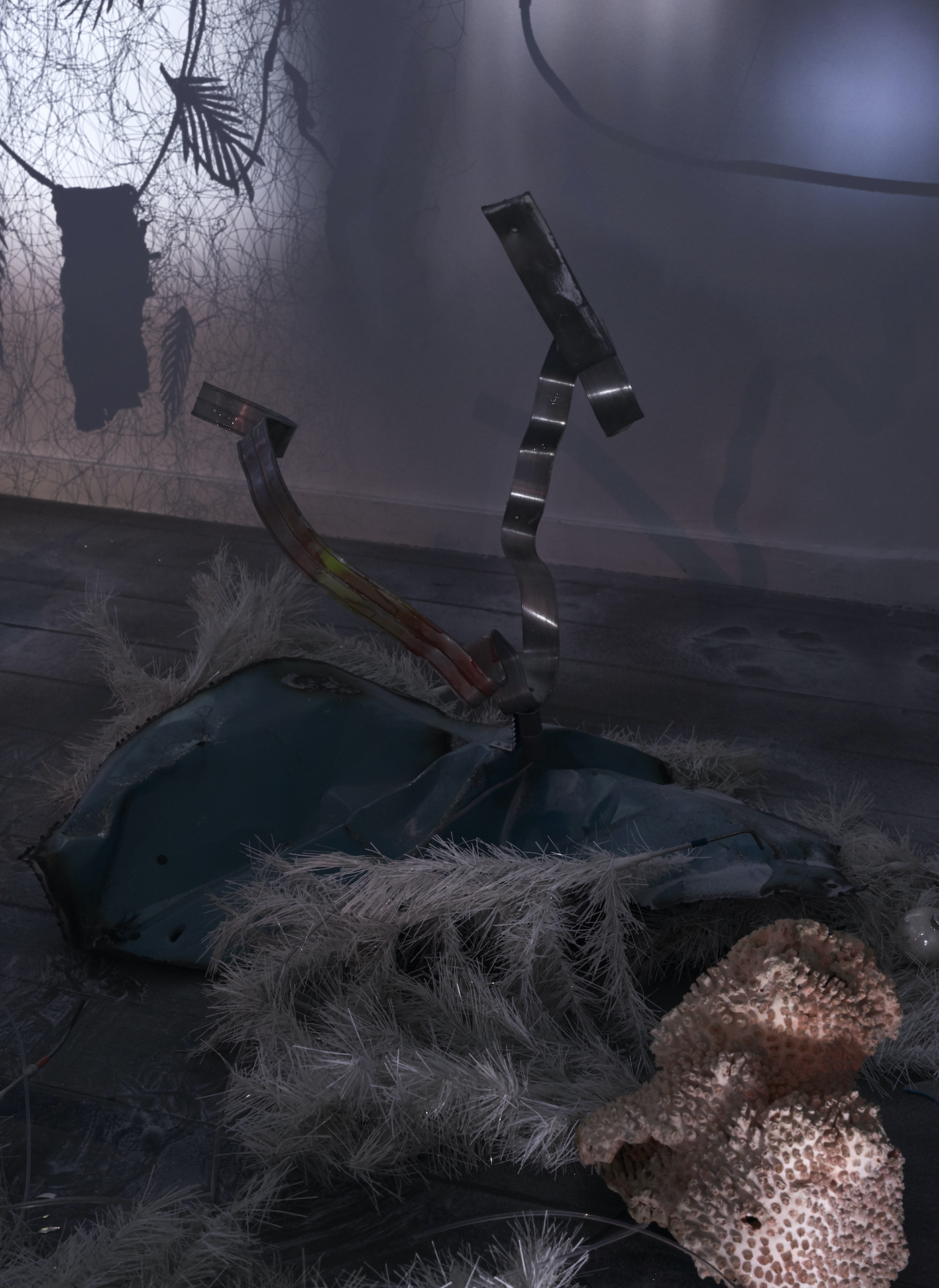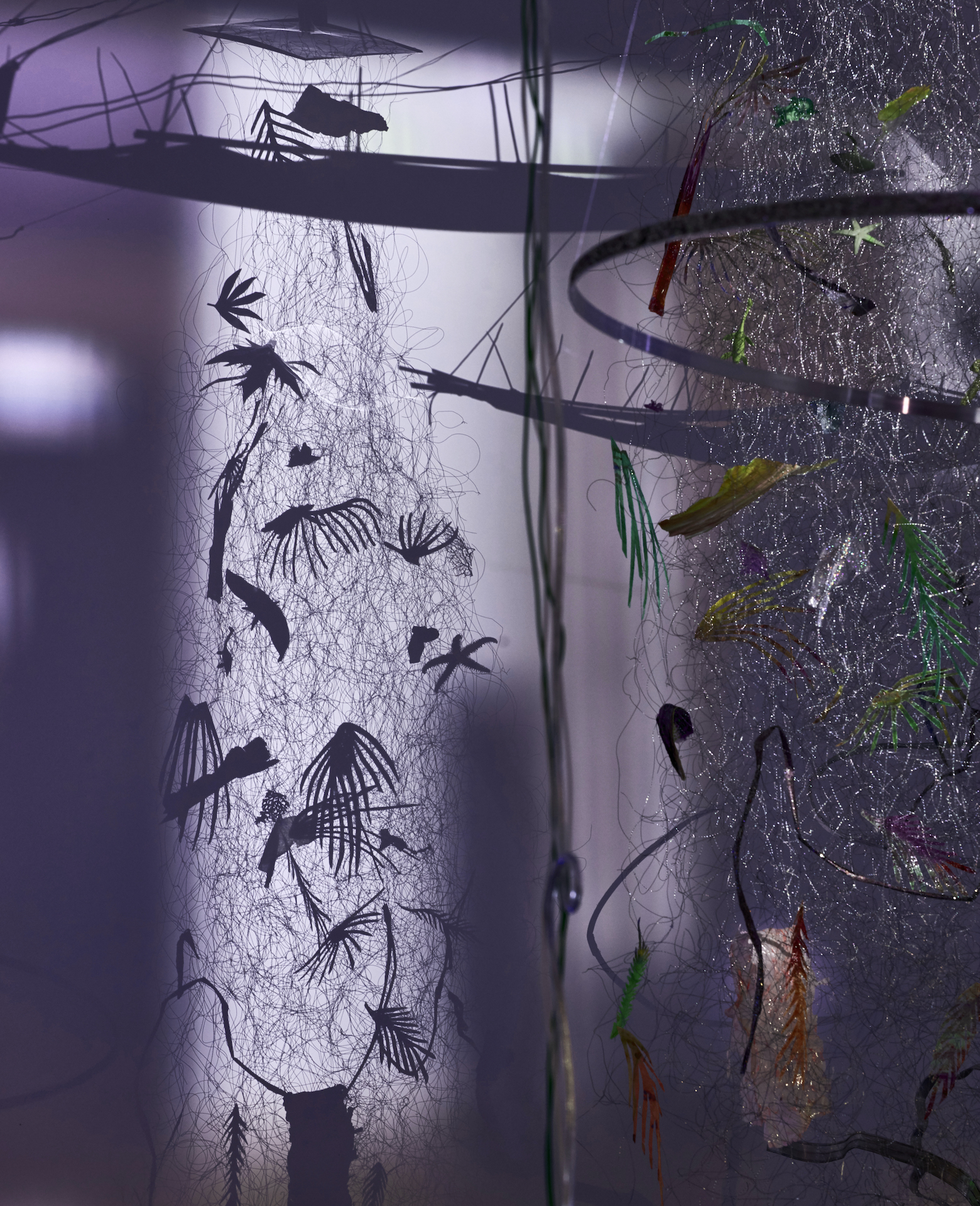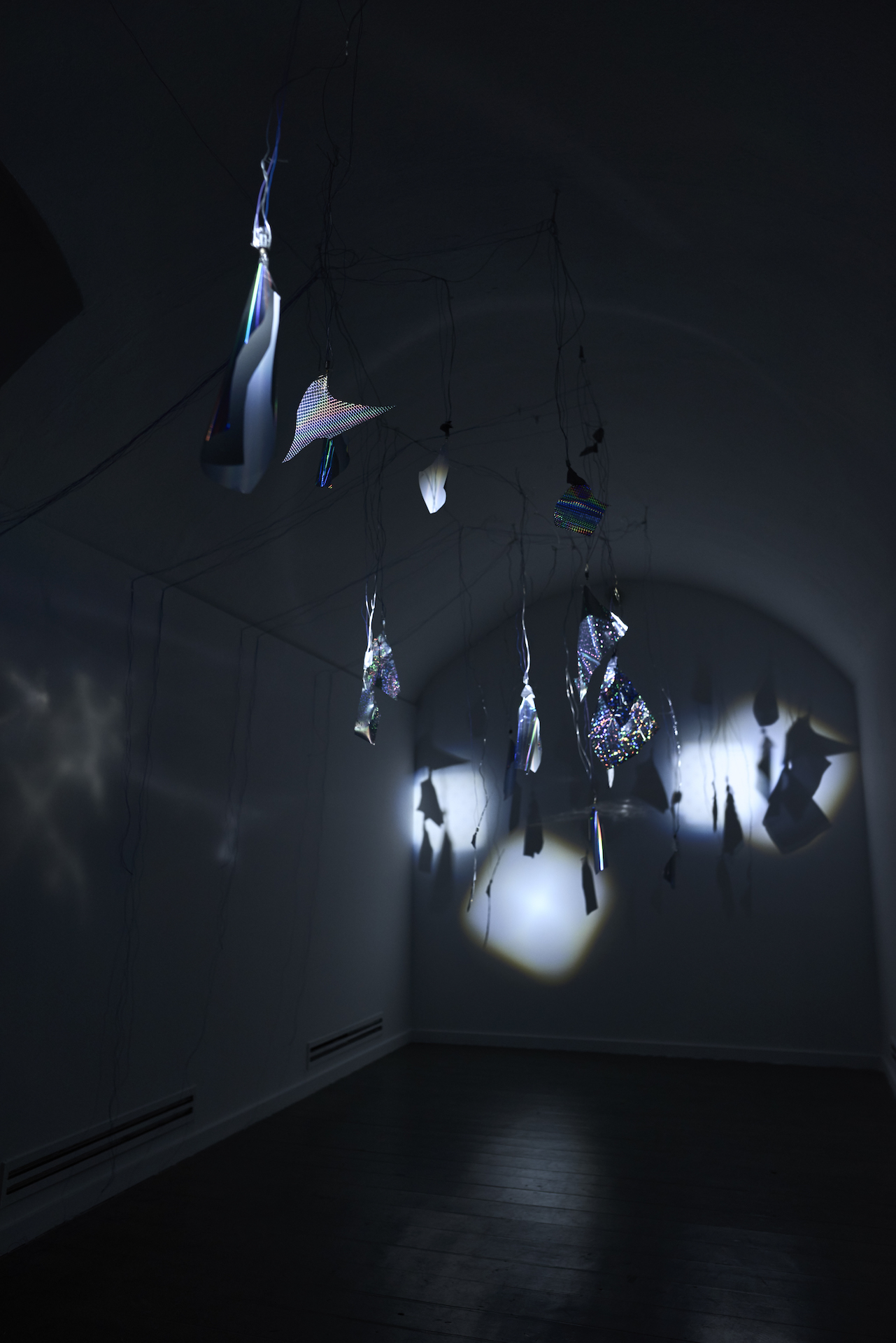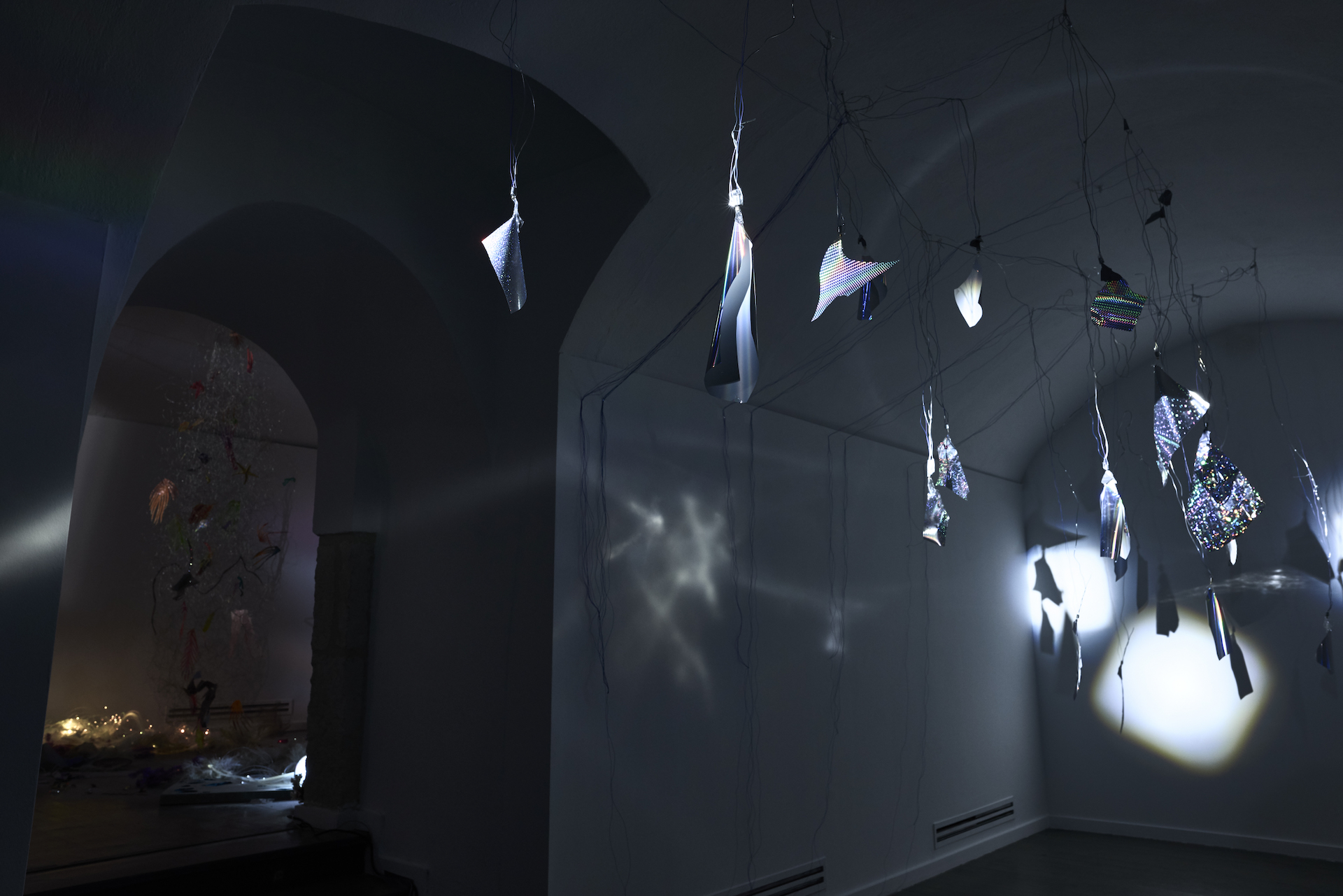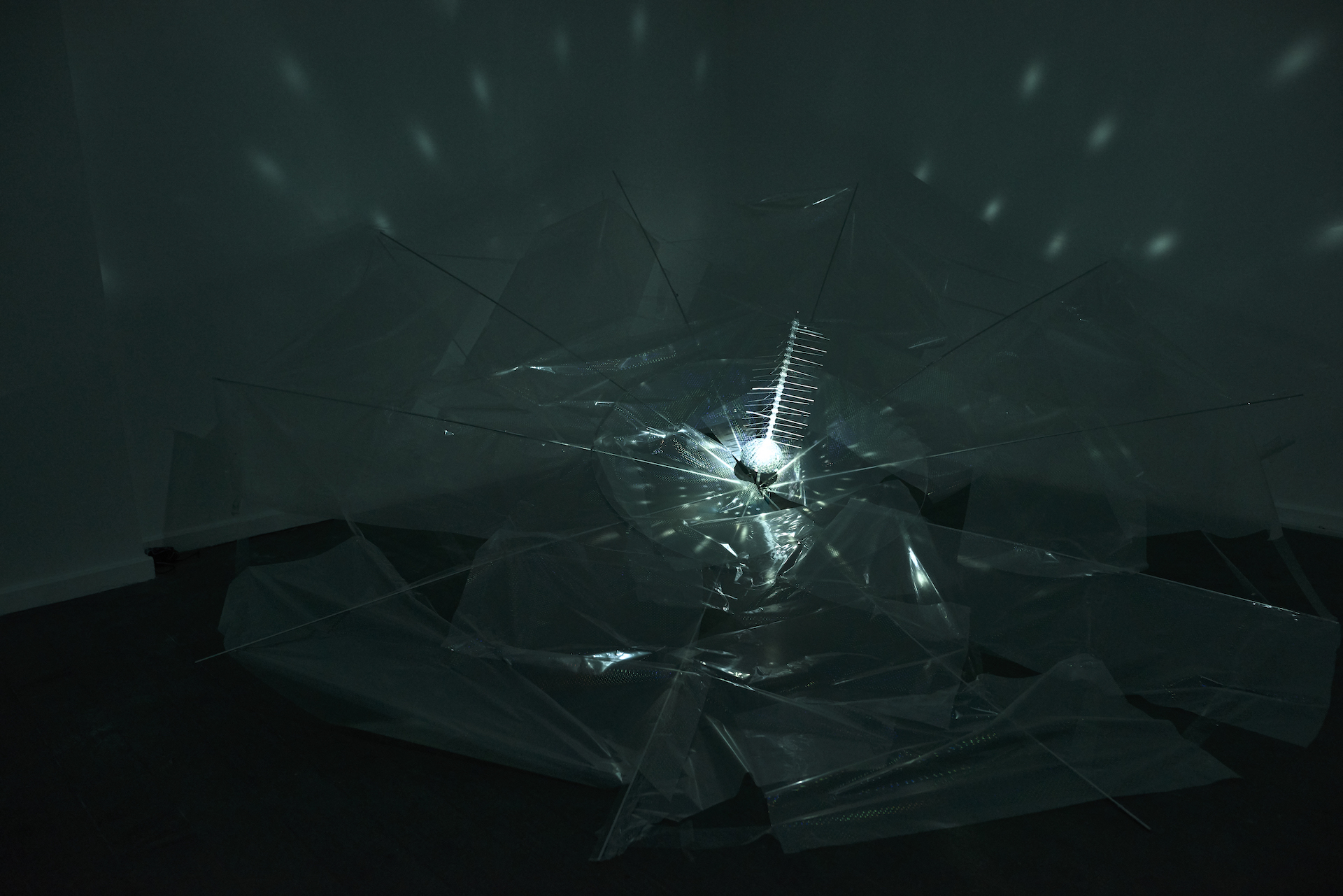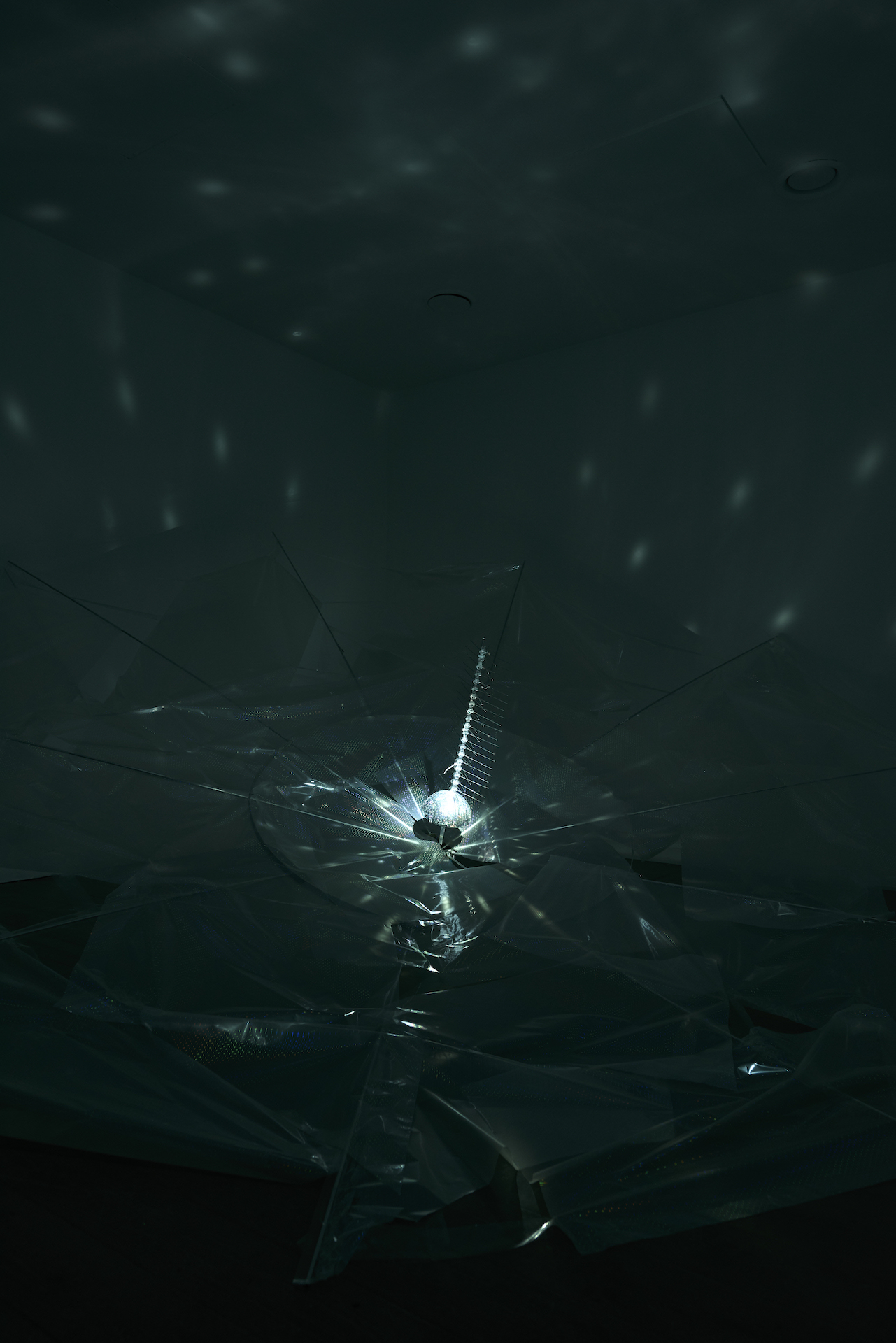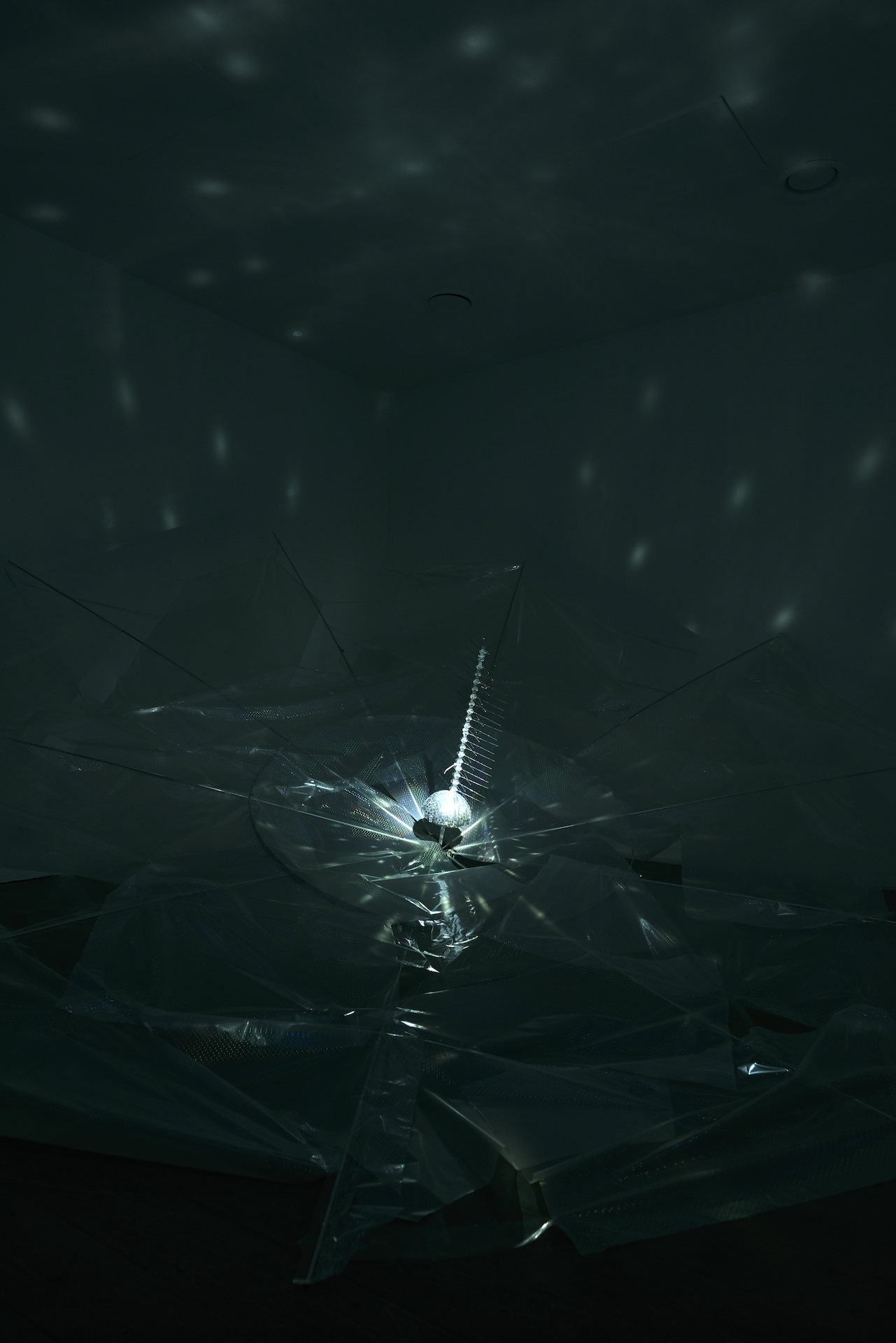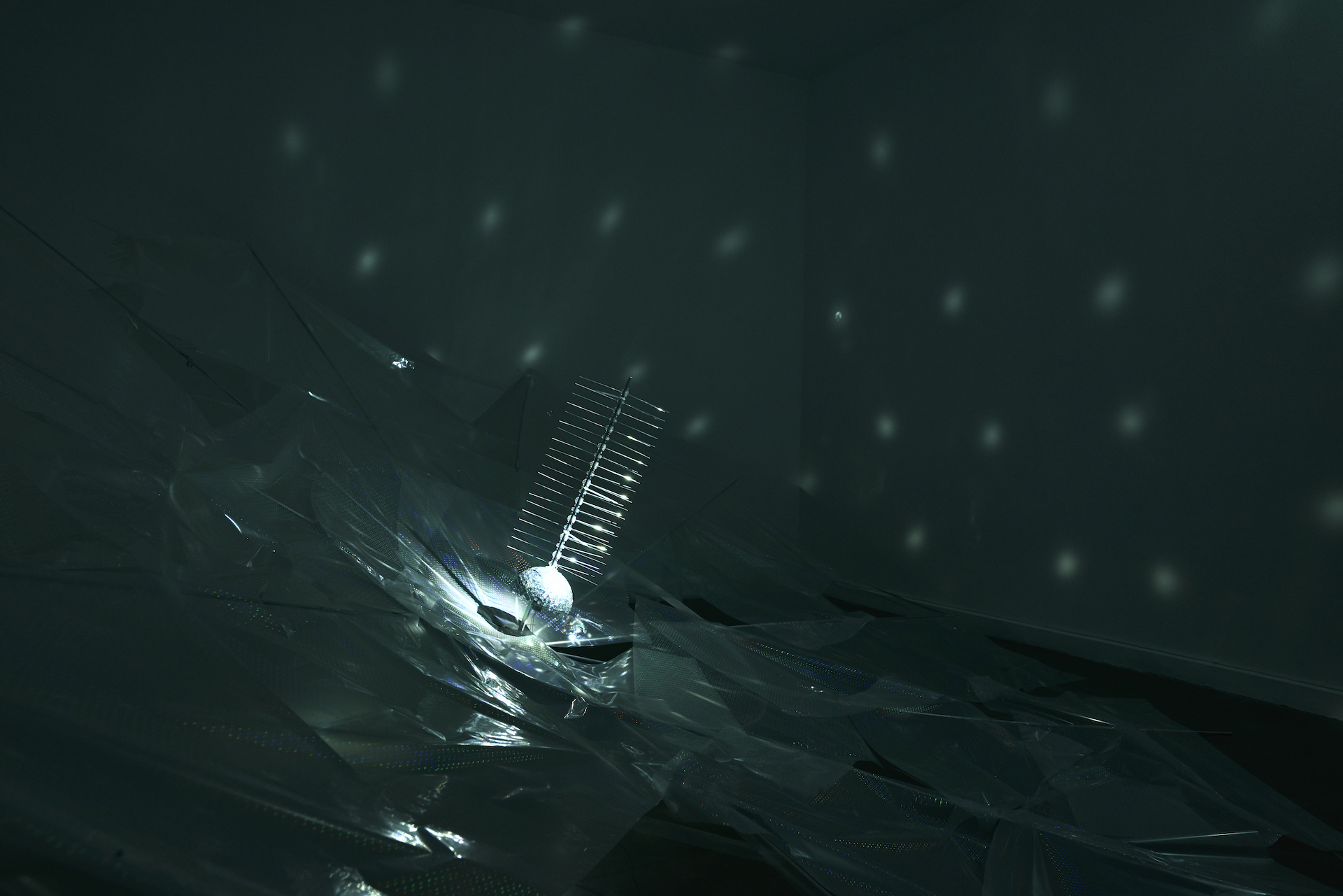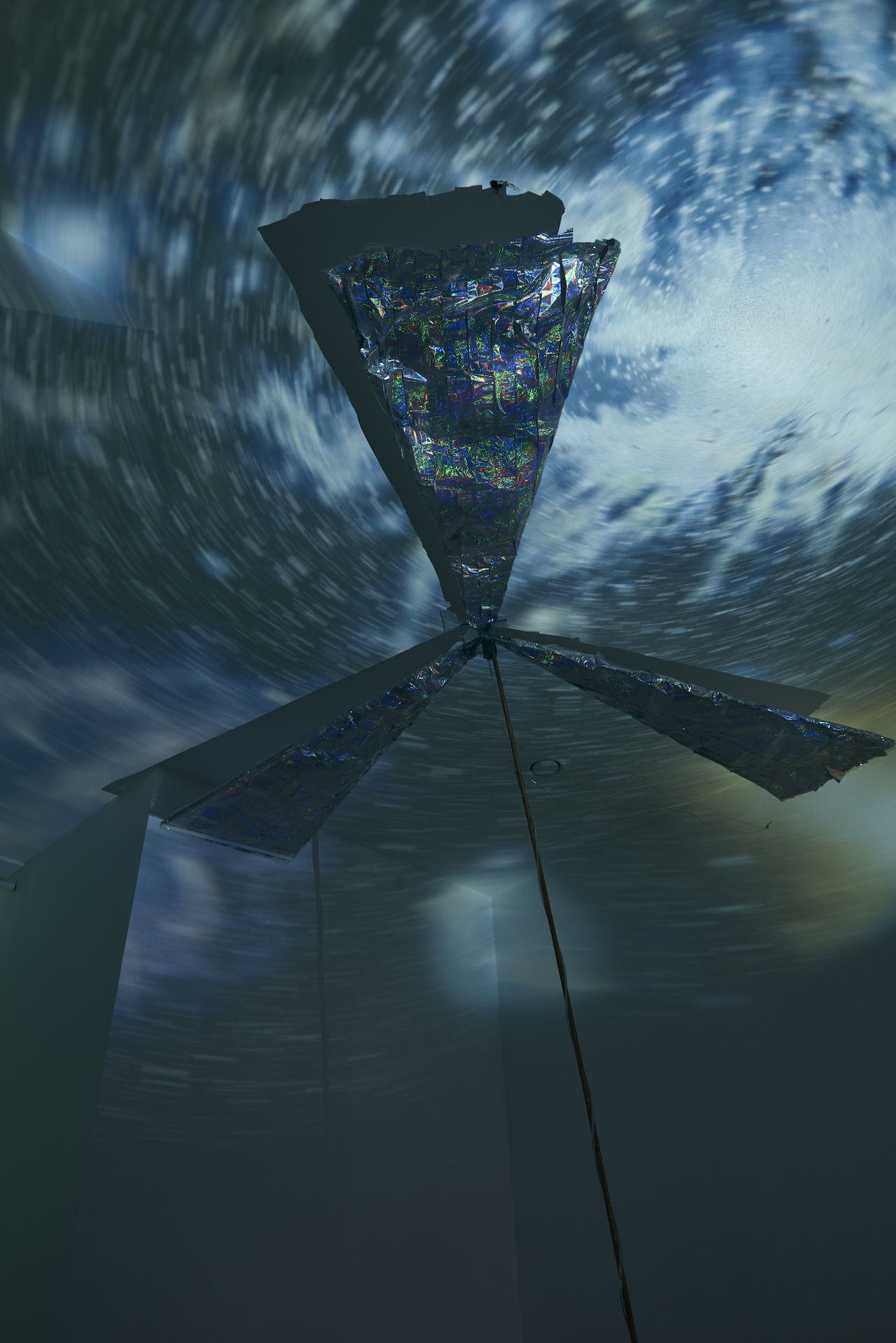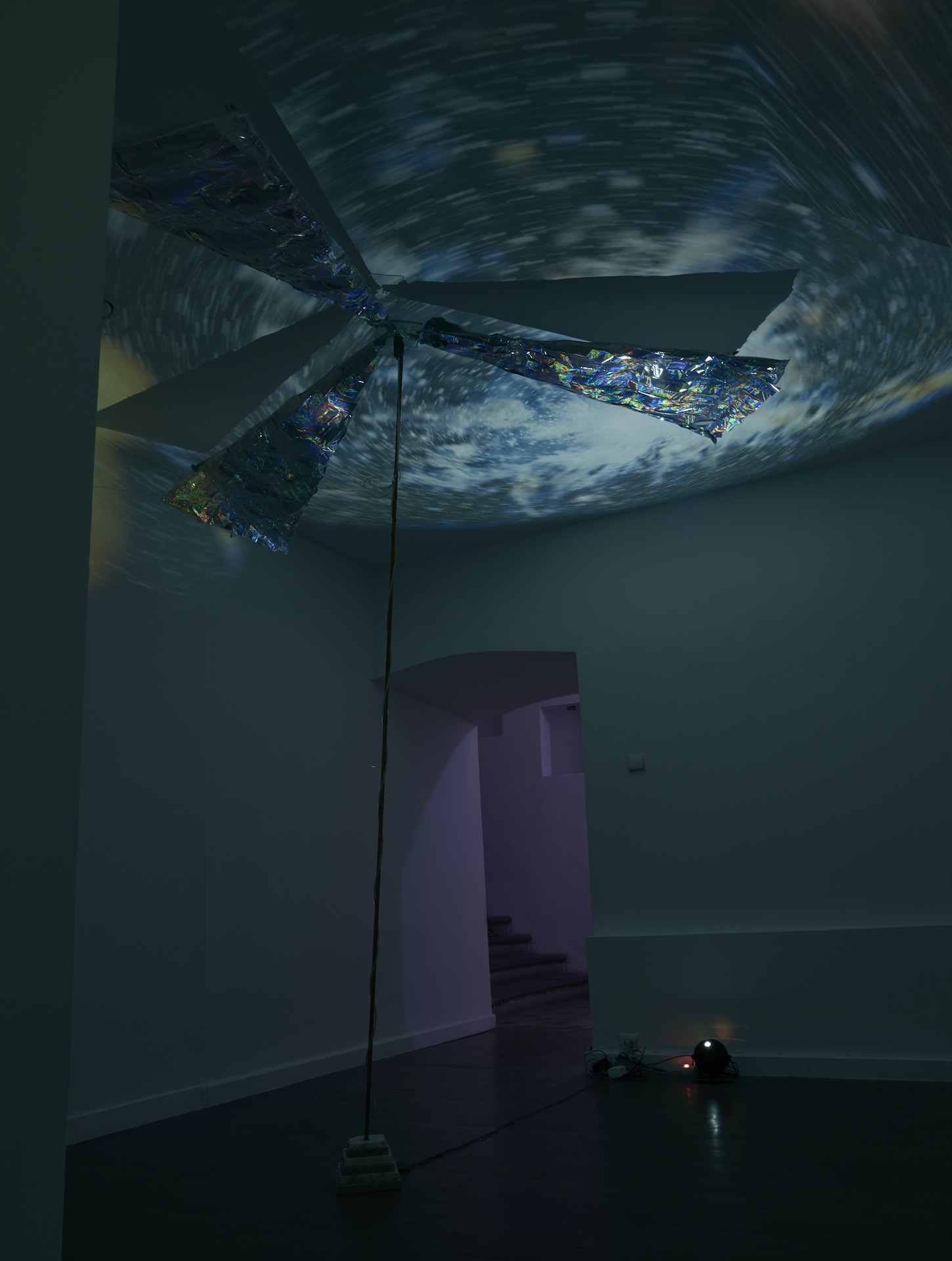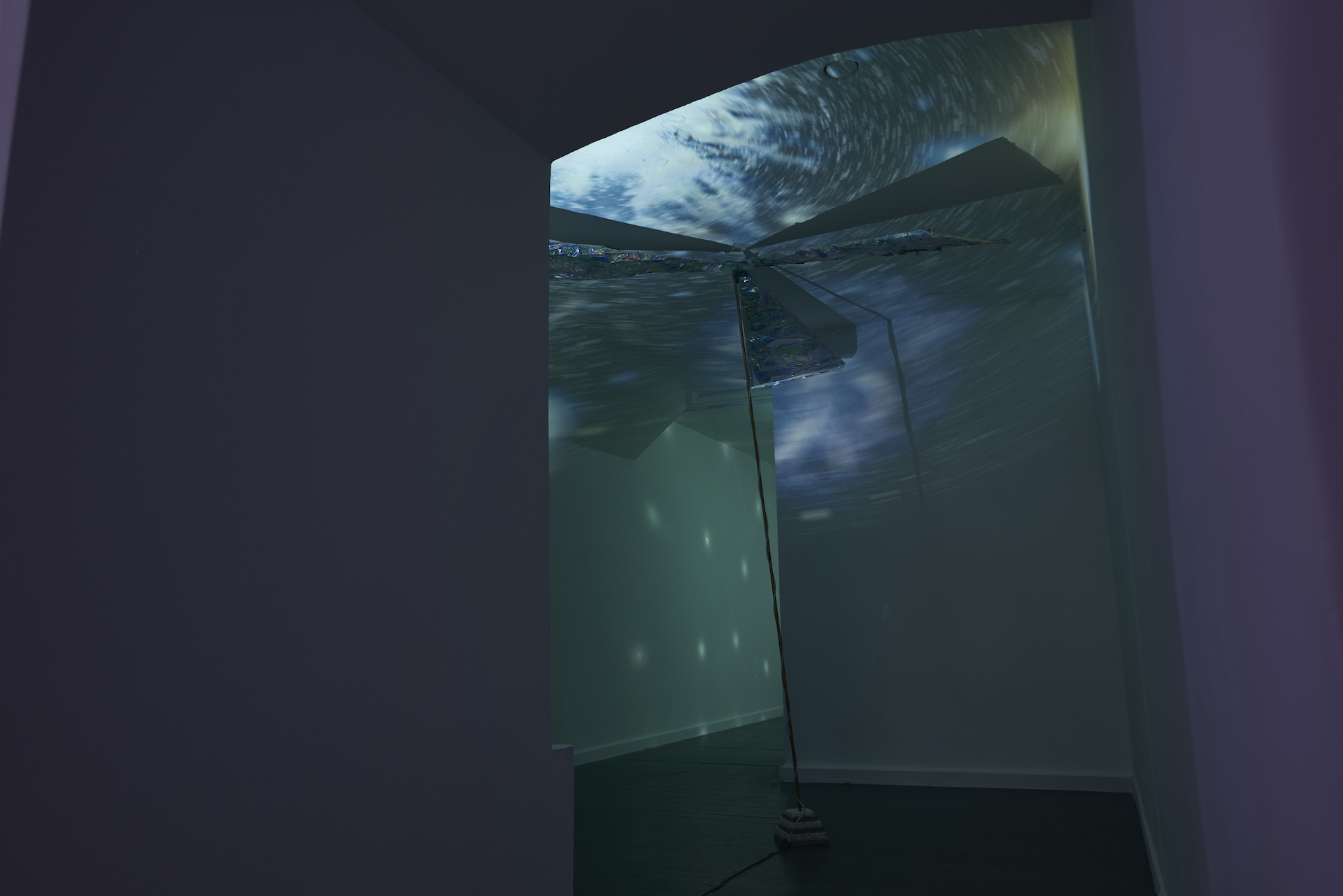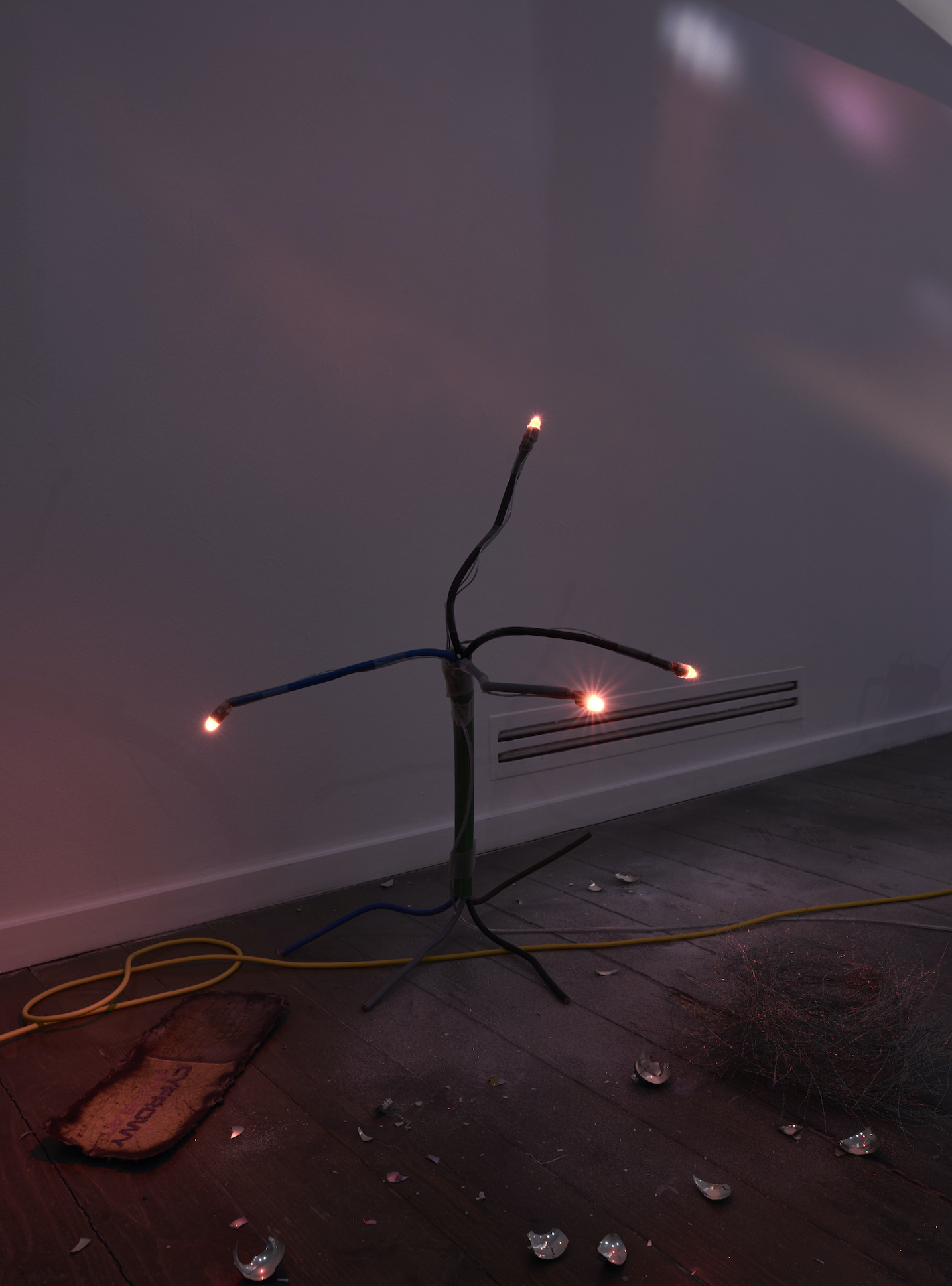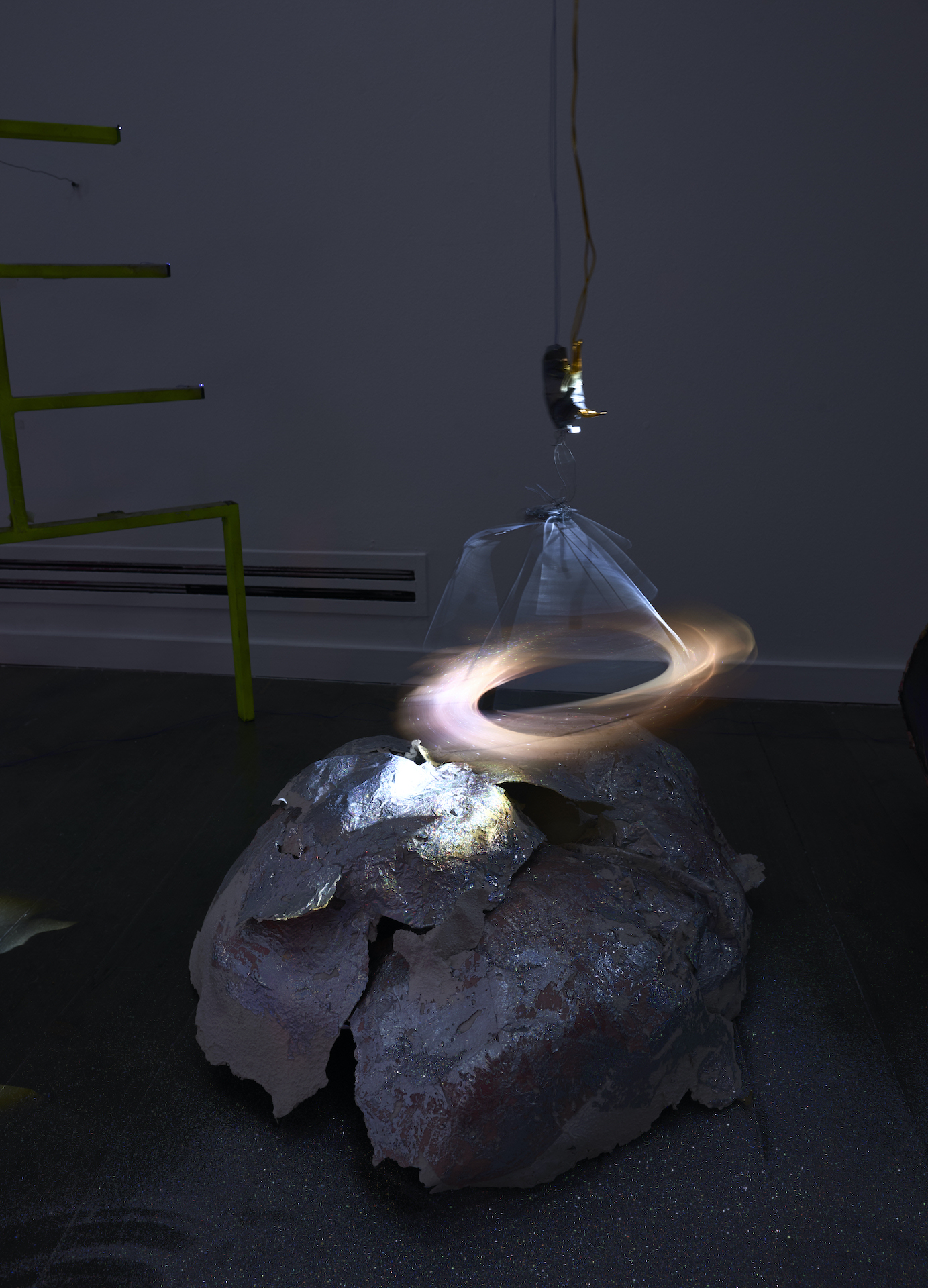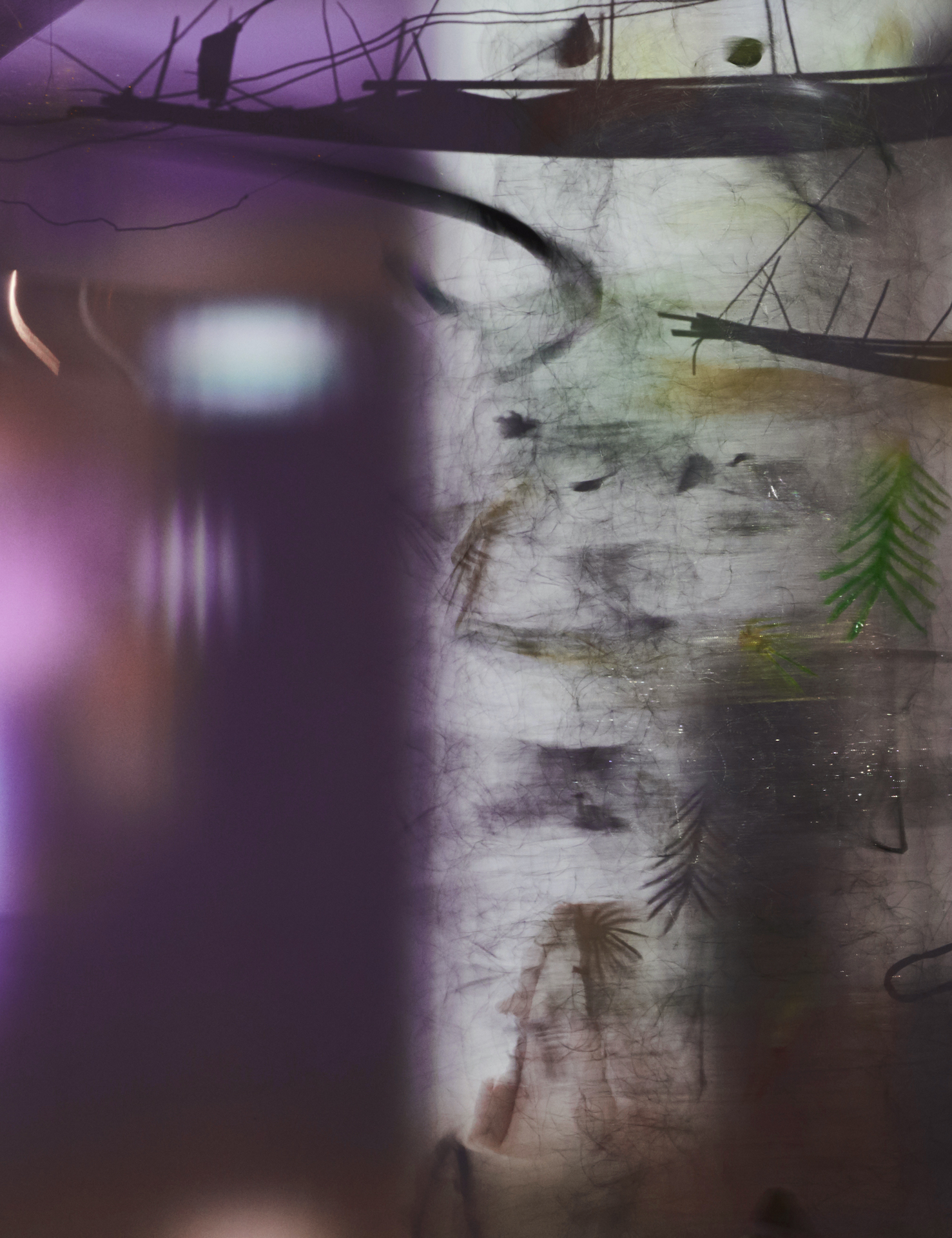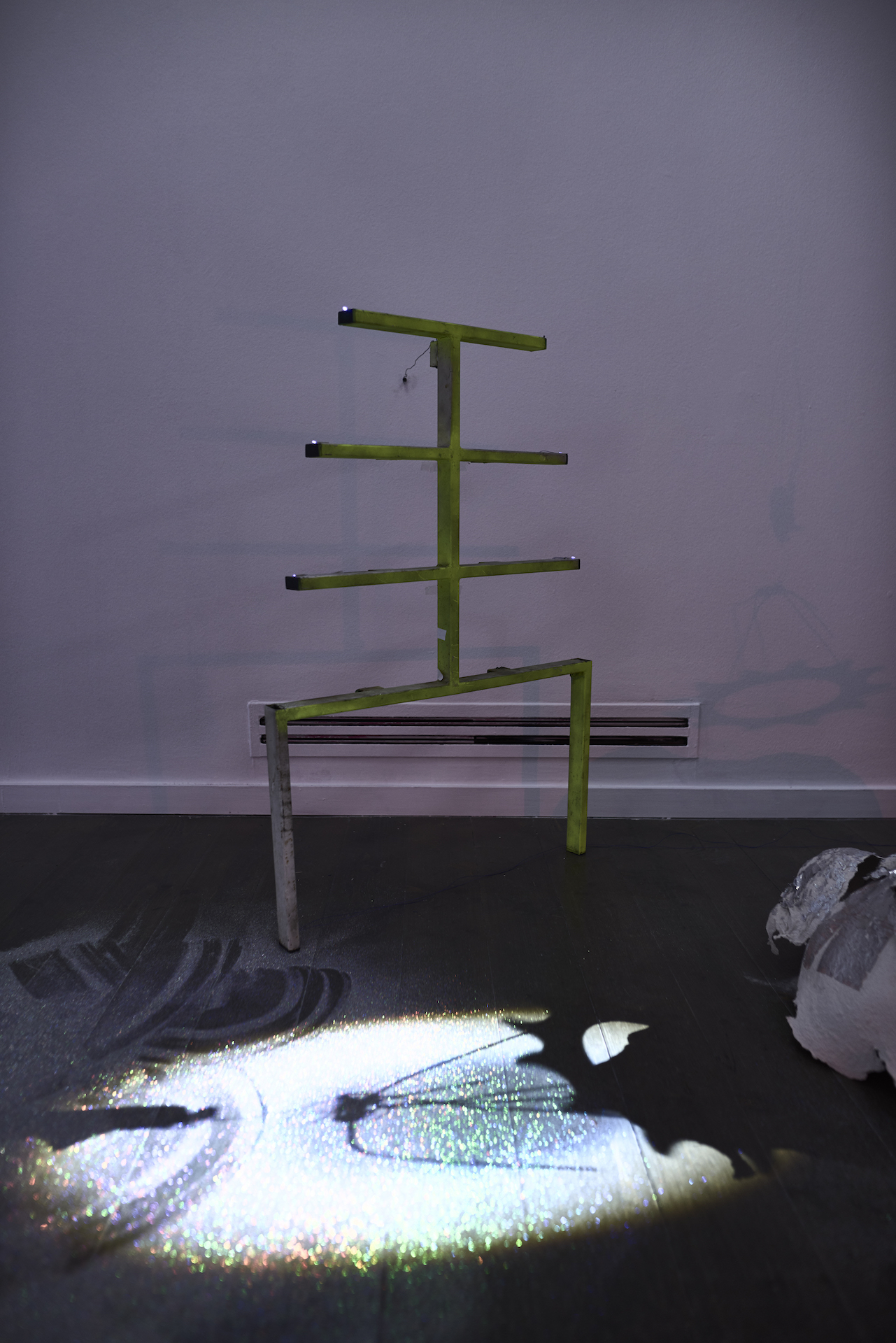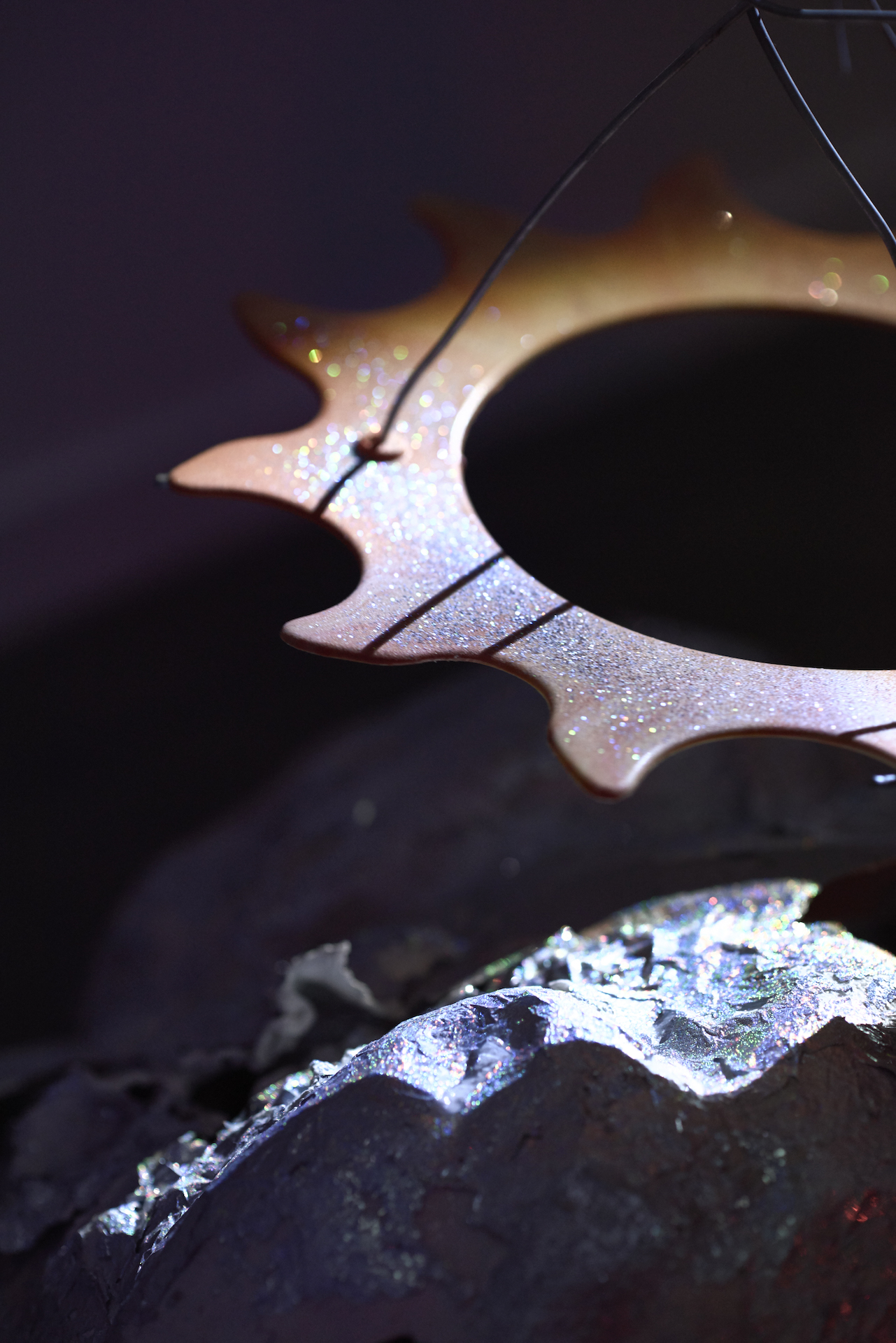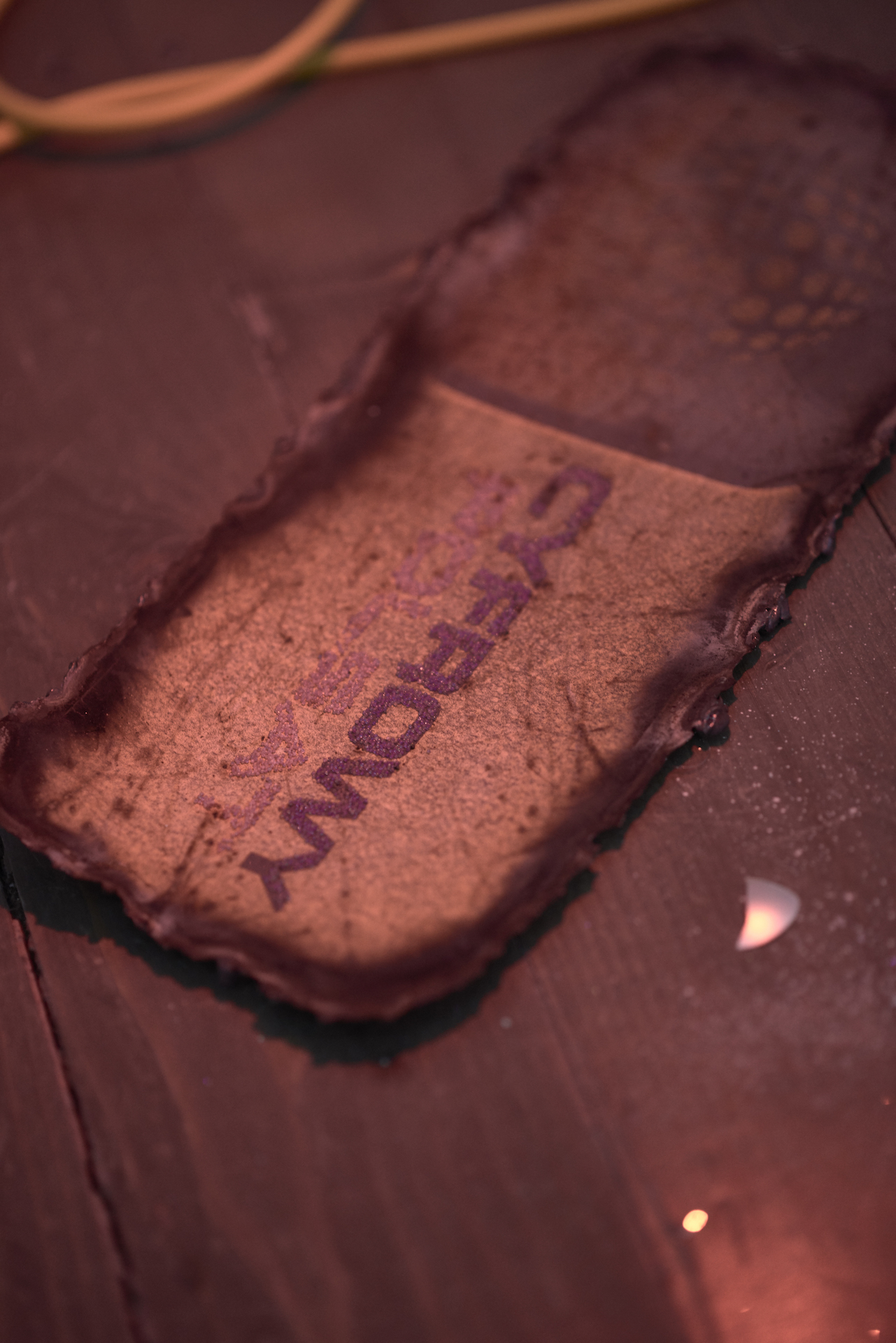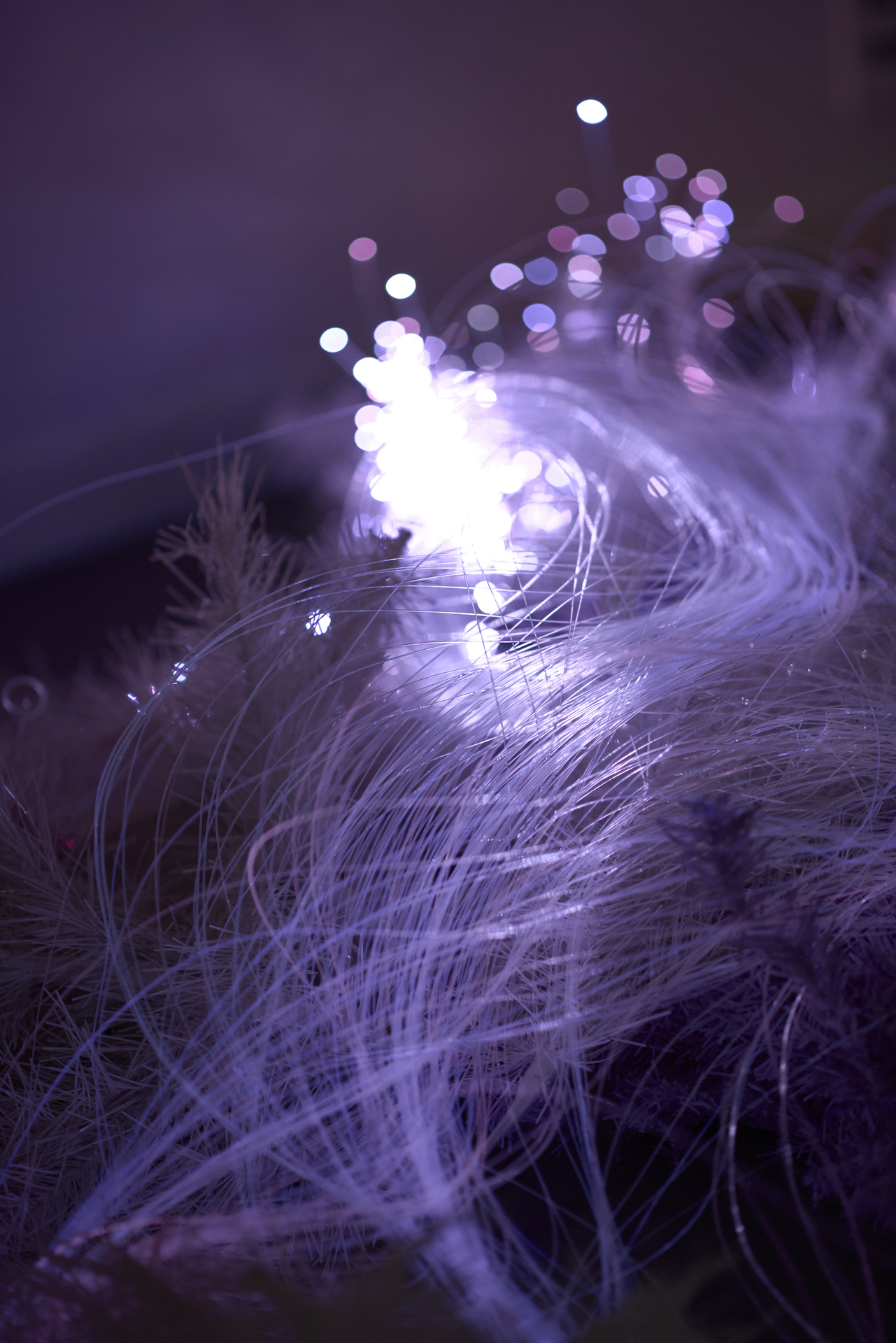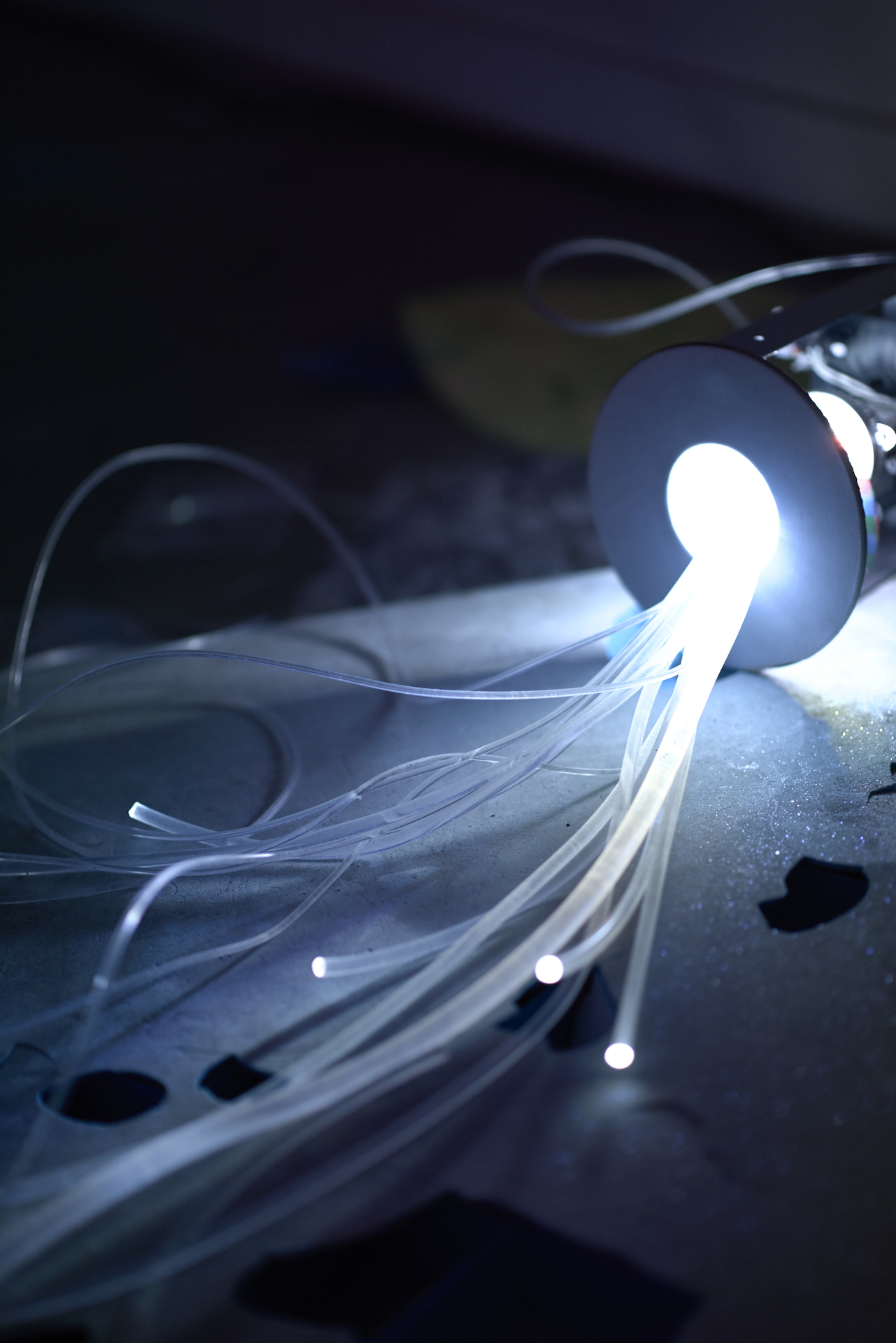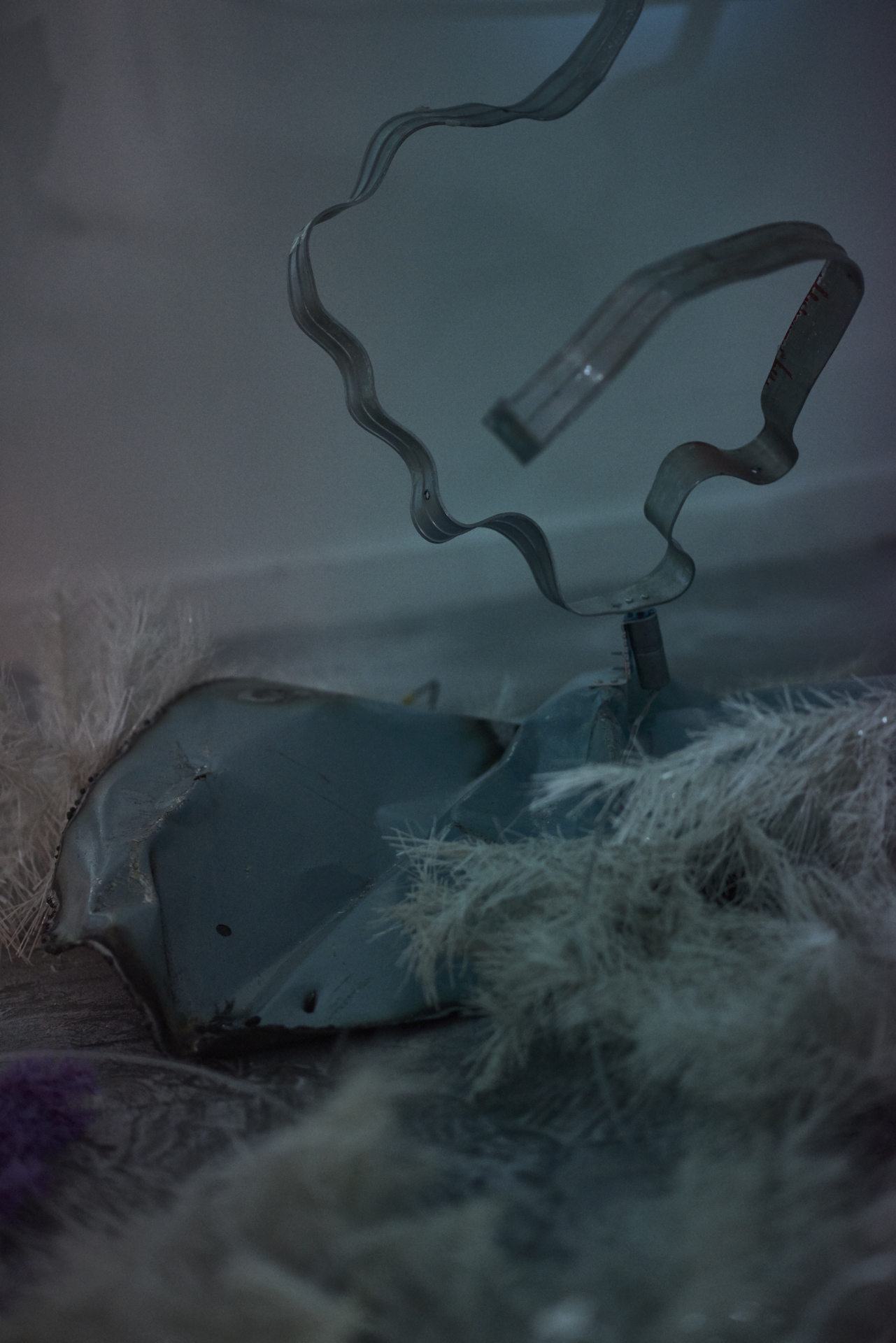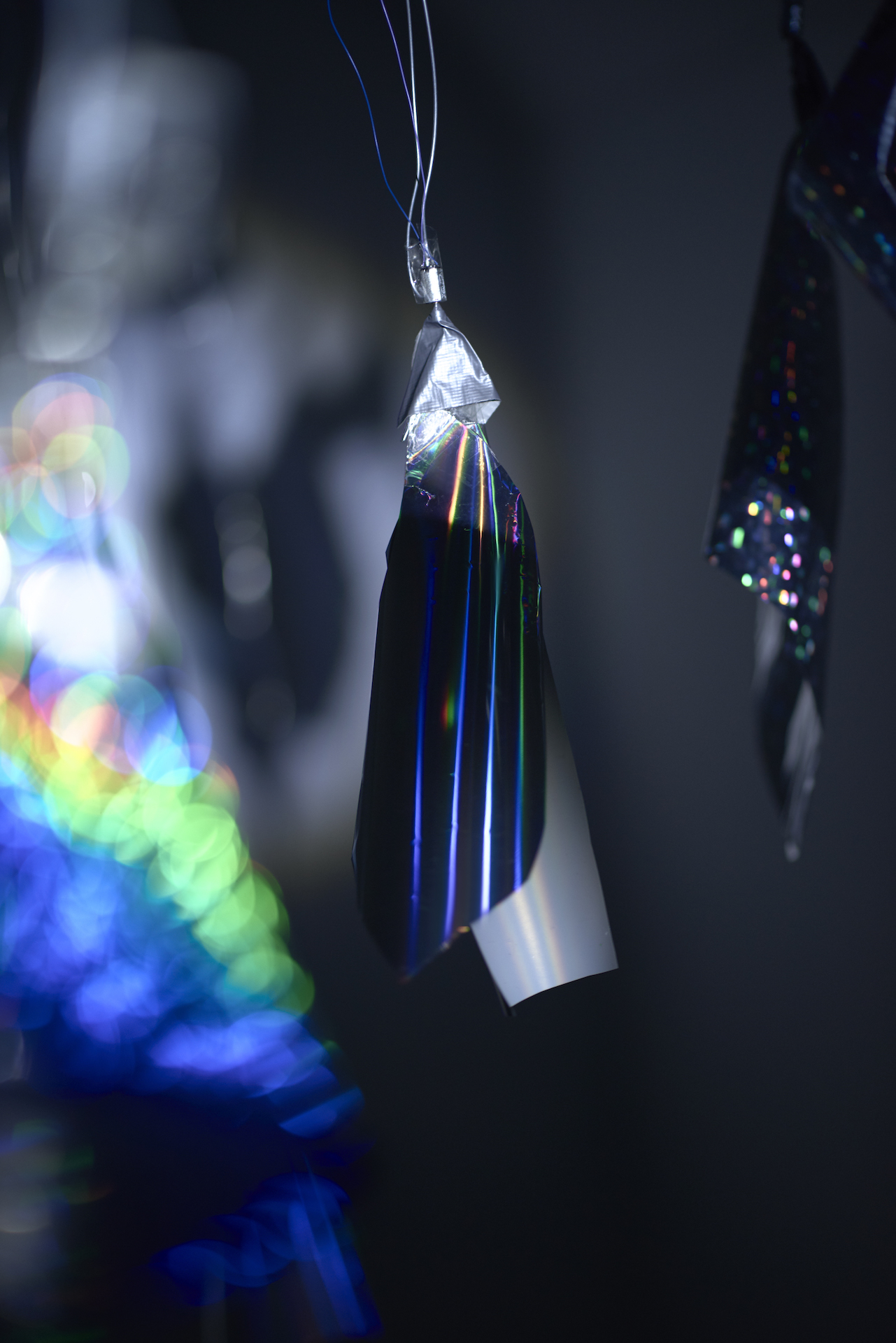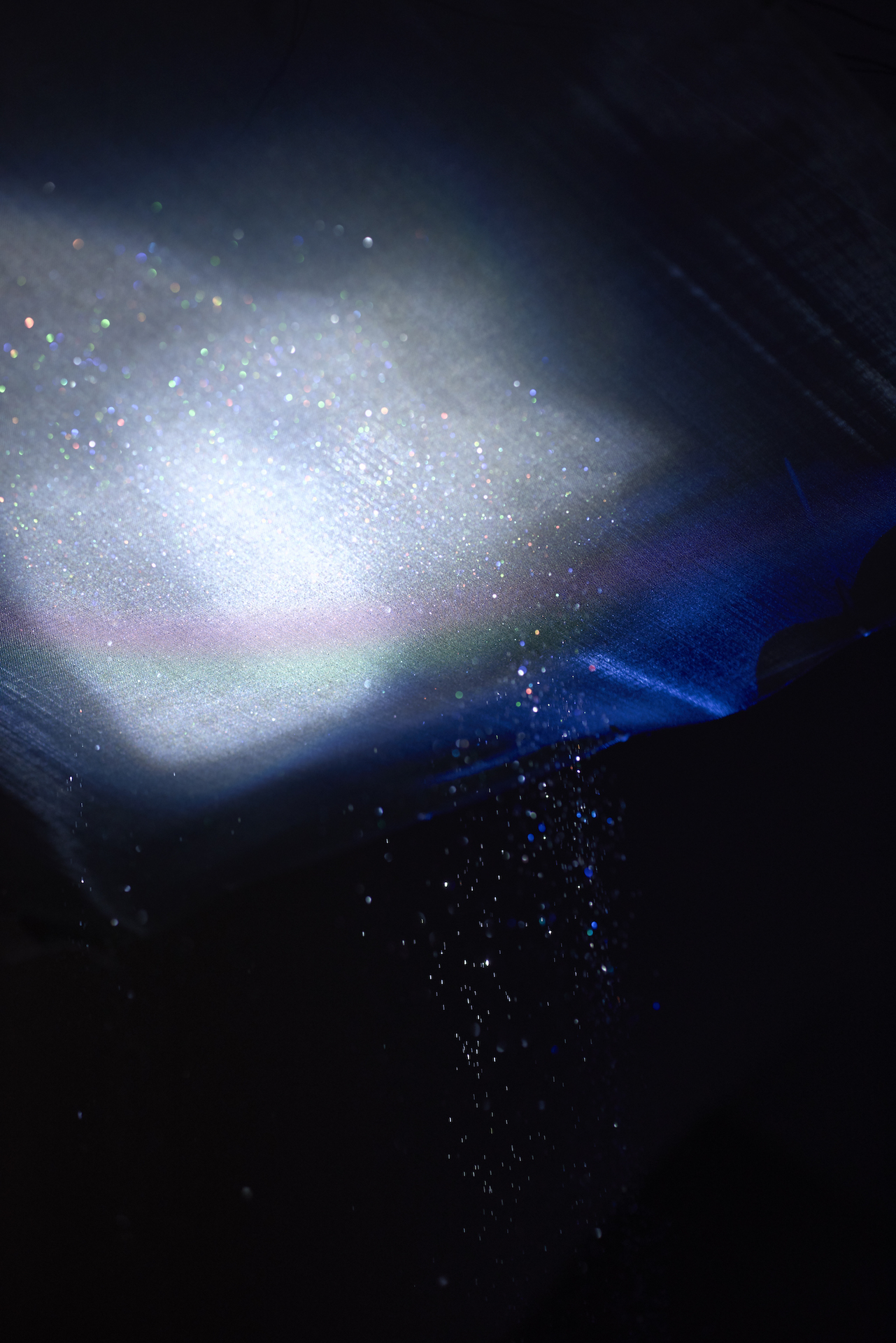Artist: Marta Krześlak
Title: Ayaaoeho.
Venue: Szara Kamienica Gallery
Curator: Ania Batko
Photo: all images courtesy of the artist/ photo: Paweł Wyląg
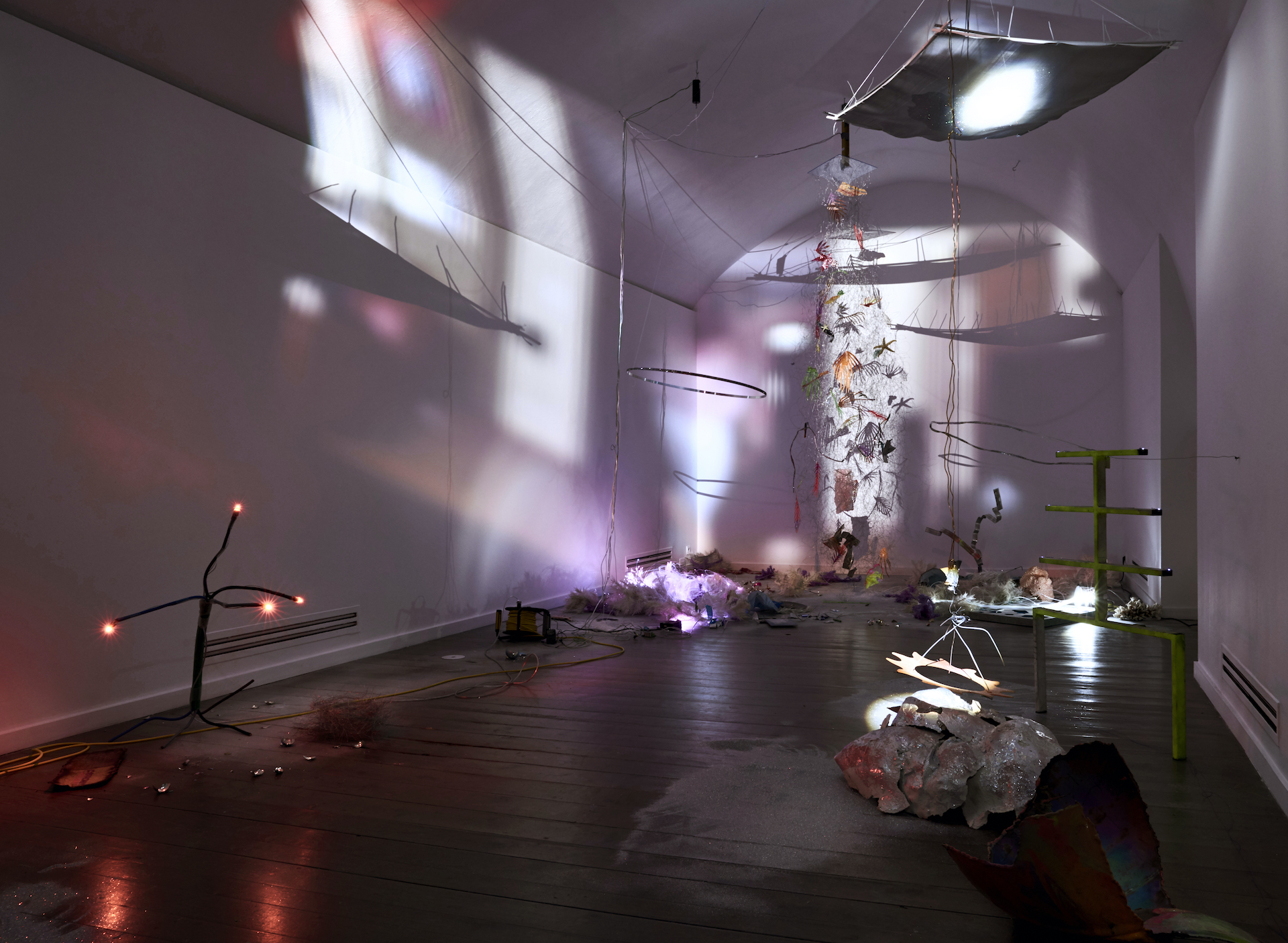
The Little prince climbed to the top of a high mountain. The three volcanoes on his planet were the only mountains he had even known, and they were only as high as a stool. ‘From a mountain as high as this,” he said to himself, ‘I will be able to see the whole planet and all its people at once.’ But he saw nothing but sharp, craggy peaks.
‘Hello,’ he said, just in case.
‘Hello … hello … hello,’ answered the echo.
‘Who are you?’ said the little prince.
‘Who are you … who are you … who are you?’ answered the echo.
‘I need some friends – I am all alone,’ he said.
‘All alone … all alone … all alone,’ answered the echo.
‘What a peculiar planet!’ thought the little prince. ‘It is too dry, too pointed, and salty. And the people seem to have no imagination.’
Antoine de Saint-Exupéry, trans. Katherine Woods
She couldn’t speak and – significantly – neither could she cease to repeat. This Greek tragedy incorporates a dissonance. A kind of cognitive paradox. The story intertwines existential impossibility with oppression externally imposed. With yet another coercion. The tale is, well, as old as the hills.
It is a cry, or a call. A chorus of a catchy song, or a kind of yodeling. A game that enables checking an acoustics of a space as well as a form of communication between hilltops. A neo-tribal ringtone darting through a jungle. Forwards and backwards through space. Along and across the old and the new temporality. Like a worm burrowing a spatio-temporal tunnel in an apple’s body. It cuts through the woods and the sea, soaks into breakwaters and rubs against roadside poles, bounces off mountains and falls off cliffs. Returns. The voice transforms. Turns into an abstract reverberation. It lasts, but to have it pegged, you would be hard-pressed. It’s ringing in your ears.
Aurora Borealis, a glistening rain of vibrant dust, a hurricane enclosed in a glass ball, an orbit on a stick, and a shattered galaxy. Monumental ferns and microscopic horsetails from the Devonian. Objects trembling, shaking, carried on an imaginary wind, disappear into the contour-erasing obsession. In a vertigo of hierarchic points. They copy and repeat. They taunt and tempt. Mosses as slick as sweepings. Mirroring light or just catching reflected glints. The aerial collects fog sounds, the twister gives off metallic noises, and the peculiar construction summons impending hurricanes. The show goes on. The plot unfolds in a crystal palace. A warm-house garden in miniature. Therein, as Sloterdijk would have it, the space – since time has long ceased to exist – elbows its way for ecstatic creatures, in whom the outside operates without end. That same outside attracted by a glass coating like a magnet, and the very same that will eventually break that ceiling. Like a palm that has grown out of too tight a conservatory. Or else. It has been outgrown.
To get there, you go down a flight of stairs long unwalked. Every step makes a thud. You lose reception. Your phone does not pick up signal. Northern lights observed during ionospheric storms disrupt radio waves. You feel as if you landed in the Earth’s interior. The wind blows. The air is filled with a humid smell. The conspicuous thing is snow. That gross glitter against the sky-devouring aurora. Green, the oxygen. Nitrogen shines red, their mixture glows yellow. The lightest gases, such as hydrogen or oxygen, glimmer in hues of violet. You hear the rustling snow. Or, perhaps, its whisper. It falls softly and crawls underneath the floor. You’re imagining, not having moved a step, how it creaks. Bundles of sound waves are reflected from the dramatis persona. Algae illuminate the dark. They secrete luciferin, a pigment that, oxidising, generates light . You’re drowning in underwater light. A glasshouse becomes a snowmound. More and more snow. Unbeknownst, everything begins to creep underneath a heavy cloud of dust. The very same cosy crystals embrace you, whirling in the dance of straw mulches.
Once squeezed out, the paste cannot be forced back. When, at long last, you reach the surface, or are rather pushed up to it by the dust, you seem to think it was just a dream. A film in which a toilet-straddling girl declares: “The snow will be no more.” And a story in which, like in Philip K. Dick, a dreamt-up reality is more real that everything else happening besides. We exist as long as the tale is being written. Maybe, you could have been convinced that it was all nothing but a complex imitation, a waking dream or, better still, a mirage, if not for the sound. The tone still carrying also the scream, which keeps returning all the time. The Greek woman protagonist does not speak, but instead keeps repeating all the time. She repeats words so long that their meaning gets distorted, bending like blades of grass in the wind. Effaced and disfigured. The echo works as a spell. Leaving only the “Ayaaoeho!”
For a few weeks to come, your shoes will have dispersed specks of flickering face-glitter.
